Text
These are not the Zenins you’re looking for - Naobito & Naoya ramblings and then some
Since there’s no real alternative for longer rants with a personal flavour, let’s give this a shot here on tumblr I guess? Heh.
Preface
General Naobito facts:
71 years → born in 1946, died 2018
Curse Technique: Projection Sorcery
Special Grade 1 Sorcerer
One younger brother - Ogi Zenin
Probably one older brother - unnamed, father of Toji Zenin
(I assume Ogi is younger because they are clearly not twins from the way they look, Ogi looks younger and Ogi’s children Maki & Mai are ca. 10 years younger than Naobito’s son Naoya).
Three sons - youngest son Naoya (27 years in 2018 - born when Naobito was 44)
Fastest Jujucist (except for Gojo Satoru)
Both Naobito & Naoya are names that translate to honesty & straightforwardness. Naobito’s further includes a meaning of “helpful/support”
Hobby: Anime
Favorite food: Sake
Least favorite food: Fishcake
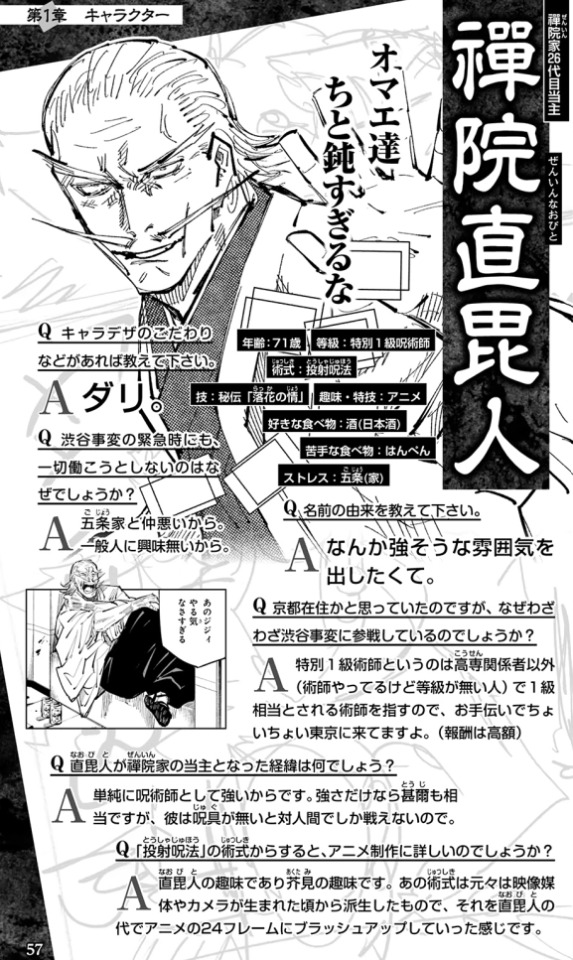
Observations & conclusions from his manga scenes:
Confident, determined, affirmative, tactical (ref. Dagon fight + Jogo appearance right before the burn, doesn’t mind losing an arm, thinks ahead of Toji going for Dagon and jumps in to distract in support)
Cocky & playful, enjoys fighting (often grinning, excited to see Dagon evolve, taunts Nanami “Two 1st grades cannot exorcise (Dagon)?”)
Petty (annoyed by everyone fixated on 4K 60FPS and stupid numbers, retorts to Maki wanting to take Clan Lead)
He was drinking and did not care about Maki leaving the clan. There was no mockery and no attempt to stop her. Only when she said she’d become the next clan head, he asked if he should make her life harder.
He showed up to Shibuya to help out the rest (Maki mocks his drinking habits, with cans next to him he shouts over to her to bring him drinks, but later he nonchalantly breathes into Nanami’s face and we see he actually has not been drinking) and is excited to hear Gojo has been sealed, wants to celebrate.
Maki antagonizes him uncalled for, a bait he does not take but tells her matter of factly she should be the one to go home, to which Nanami agrees.
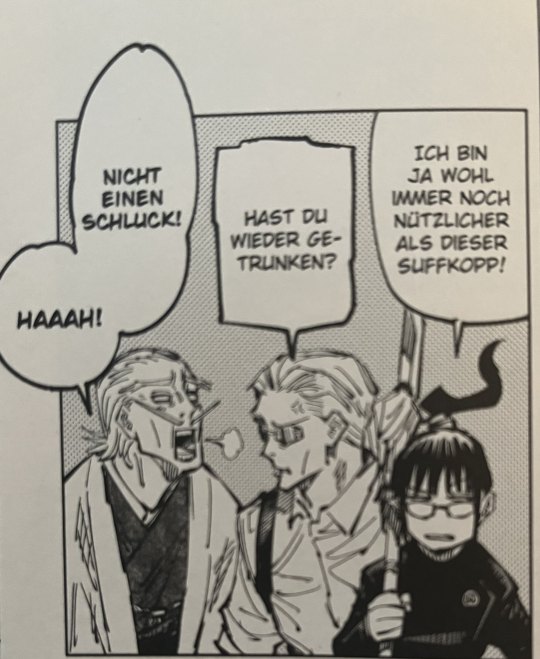
Assumption based on minor clues
Clan head since the 80s or 90s — depending on circumstances.
→ 2018-1185 (Zenin at the very least date back to Heian times) = 833 years with 26 Zenin clan heads= average leadership of 32 years = his latest “starting date” would have been 1999.
IMO it is very likely he took over earlier than that, because as far as averages go, it usually is way longer spans that are interspersed with very short ones.
(see: “medieval life expectancy was just 31” which did not have most people die at 31 but caused by a high infant mortality seeking the average - you either died as a kid or lived into your 60s).
I think he took over in the mid to late 80s because that sets up the unfortunate situation his family line had to deal with.
On a factual level it’s also not unlikely, because the first half of the 20th century was a chaotic time all around the globe, full of societal shifts and political conflicts that may have potentially led to Naobito’s father/Naoya’s grandfather dying “early”.
Anyway. I present to you:
THE LIFE & TIMES OF NAOBITO ZENIN aka HOLY HEADCANON
The historical context is what makes Naobito so interesting to me and further supports my personal controversial headcanon that:
Naobito & Naoya Zenin are NOT the major players in the, let’s call it “traditional Zenin camp” that exiled Toji and used all kinds of shady internal clan politics to keep power systems up.
Let me take you on a very exhaustive detour on what Naobito being 71 years old in 2018 translates to.
He was born at the brink of World War II and in the wake of the atomic bomb.
During his lifespan, Japan went from a humbled country on its knees to a major player in the global economy, driving technological advancements. During his youth, Japan’s patriotism loosened and a lot of American culture was adapted - the yankii subculture rose to prominence.
JJK readers were told that the Heian era was the peak of jujucists. IRL historically, it was a time famous for many violent conflicts and natural disasters.
Since JJK establishes negative emotions breed curses and cursed energy, this means Naobito‘s young years must have been infested with stronger curses than ever, spawned from the aftermath, suffering, resentment and personal tragedies of WWII, Hiroshima & Nagasaki.
Born in 1946 within months of arguably the worst moment of Japanese history, emerging with a new technique utilising modern animation processes, his potential power upon birth likely matched the new level of curse threats, enabling him to eventually become the fastest Jujucist alive with the use of his modern technique. Growing up in a strongly American-influenced Japan in a rapidly changing world, he was a completely different person than his father (who had seen multiple wars but no massive technological and social progress yet) likely was.
Being the middle child, his father was likely 25-45 years older than him (men back then often fathered their first child between 19 & 23, so I assume he fathered his middle child at 25+), therefore born between 1921 and 1900. This makes him very likely a very hardline conservative patriot who took great pride in the battles he fought in - either during WWI or WWII or even both. A man raised in the spirit of a proud nationalist Japan at the peak of its expansionist mindset across Asia, high in spirits from the successful war against Russia and winning military campaigns in China, Singapore and more East Asian territories. Japan during Naobito’s father’s youth wore uniforms and kimonos.
Whereas Naobito’s social upbringing (outside of his father’s direct influence) was shaped by a more globalist approach and culture, appeasing to the West and showing e.g. through the Olympics of 1964 what a modern country they had become. So when Naobito was 18, Tokyo modernised its post-war infrastructure and built both the Metro as well as the Shinkansen connecting Tokyo and Osaka which kicked off the economic growth in a global spotlight and highlighted how well Japan had rebuilt itself after the defeat 20 years ago. Japan during Naobito’s youth wore slacks, jeans and white shirts. He is old in 2018, but he is a "modern man" in comparison to what came before and he is accustomed to change and progress.
Due to this clash of ideals and lived realities in the world around them, I think Naobito and his father had a very rocky relationship once Naobito entered puberty (and listened to jazz, blues, rock and dressed in blue jeans and leather jackets) and that they had some fundamentally different views on things.
The realities of external life could not have been more different between Naobito’s father and Naobito. Whether it was the world around them or the eventual standing of their clan, Naobito was dealt a very different hand of cards than a very very long line of Zenins in previous generations had been dealt for many centuries.
Due to going up against a man with so much pride and confidence when emancipating himself as his own person, I believe Naobito grew a strong backbone and was a very genuine, upright person - within the limits of his time and upbringing. Much more progressive and less patriotic than his father in any case, which surely was a source of conflict. Yet, I suspect that succeeding in spite of his father’s disapproval is what fueled him to become a more capable and autonomous person than his brothers are and to show that an allegedly inferior curse technique will not hold him back. But Naobito and his father did not only clash about this. In the later Hakari introduction chapter, JJK establishes there are several political factions and some are in favor of traditional millenia old curse techniques like Megumi's 10 Shadows or Gojo's Six Eyes and shun new curse techniques like Projection Sorcery and Idle Gambling that only emerged with new technology. Since sorcerer grades are based on Jujutsu strength and such, people with a modern curse technique are clowned on and not properly being recognized - which applies to both Naobito and Naoya.
The realities of life for Naobito and Naoya are very similar and Naoya’s life is dealing with similar challenges as his father’s. Unlike his father, Naobito was confronted with the reality of established values, routines and social hierarchies becoming horribly moot and due to his own curse technique not being a prestigious one, he was forced to reevaluate the legitimacy of what his father had taught him and what old clans perpetuated. Both in light of the changing world and also his own value as a person and a jujucist. Naoya was confronted with a similar road to growth and reevaluating the classic Jujutsu society & clan values, also having received the same modern technique as his father and witnessing the new kind of strength Toji wielded.
While I do say that Naobito is a different man than his father, I am a firm believer that “the apple does not fall far from the tree” and very much see the likeness between Naobito and Naoya. I feel I should clarify this applies more to personality traits than opinions and I think all three of them are more straightforward and more blunt than the other family lines.
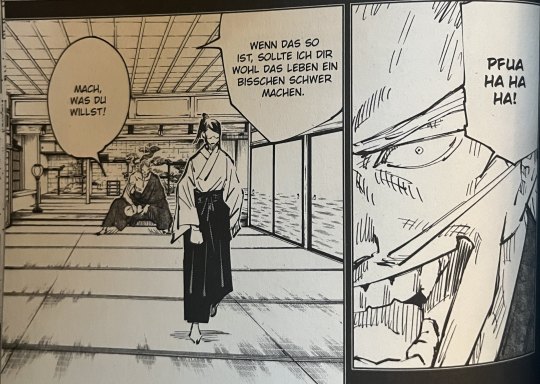
The people readers are told to be suffering by the Zenin family’s actions and opinions are Maki and Toji.
Both of which are not Naobito’s children. They are children of Naobito’s older and younger brothers.
Naobito’s unknown older brother exiles Toji due to him being resented and seen useless by the majority of the clan for not having techniques or energy, Naobito’s younger brother Ogi and his wife raise Maki & Mai in a cruel way, on top of that Ogi is shown to secretly plot behind people’s backs and be involved (with e.g. Jinichi) in inner-clan intrigues and betrayal. Funny enough, Toji himself is shown to be as much of a schemer (as seen through his bounty plan) and backstabber (pun intended) in line with his upbringing.
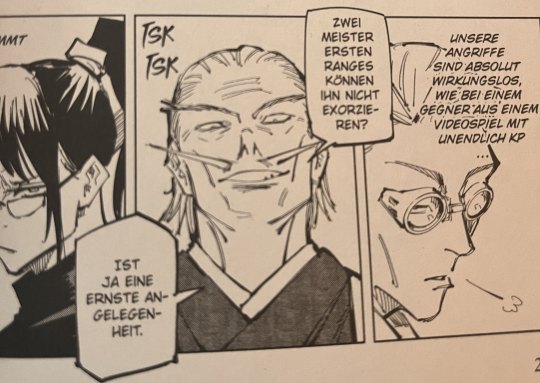
Naoya & Naobito on the other hand speak their mind openly, announce their gripes and do what they want. Naoya and Naobito are not schemers, they very much are -in accordance with their names - straightforward.
Naoya is many things, but he is not a liar.
Both Naoya and Nabito are eccentrics with a very flashy style that does not conform to plain traditions:
Naoya with his piercings and dyed hair (I’ve previously mentioned his white hakama being unusual for men, which still holds true, but it is not uncommon for high rank swordsmen to wear white ones, so I have now come to conclude these indicate his rank as Chief of the Hei) and Naobito, as an old man, sporting this over the top moustache.
There is an idiom about Japanese society that the nail who sticks out gets hammered down. Both Naoya and Naobito are doing everything to stand out and refuse to fall in line with unreflected traditional actions.
Both have not inherited the Ten Shadows technique but Projection Sorcery - as a result, both are on their own side which aligns more with the reformer side (that contains other Jujucists such as Hakari & Kirara who also have modern techniques), than the conventional conservatives (such as the higher ups or the Kamos. On that note, take a moment to reflect on the implications of Maki and Mai wearing modern school uniforms while Kamo Junior wears a uniform that much more resembles traditional clan attire: The Kamos are as conservative as the Zenins and probably more so than Naobito).
Both Naobito and Naoya are denied their perceived birthright purely by the unfortunate existence of Gojo Satoru and his Six Eyes, and Megumi having the 10 Shadows Technique, for the first time in hundreds of years denying the Zenin’s claim to fame.
Since Gojo was born 1989, I personally like to imagine Naobito tasted clan leadership as “the strongest” (and, in his case, fastest) for at least a few years before the one to change the world’s balance was born - simultaneously stealing Naobito’s position at the peak of the Jujutsu world and also denying that of his at that point two sons. Toji was already past the point of manifesting a cursed technique and therefore all existing “sons” of the Zenin family were ruled out to take their clan’s glory back from Gojo Satoru.
So Naobito tried and succeeded in having another son - I believe this is why Naoya was fathered by him as late as at 44 years. All hopes to restore the waning Zenin power were now on this little boy growing up. Would he be the one to manifest 10 Shadows and make the Zenin a worthy competitor to the Gojo clan again?
No.
Naobito, at this point already several years into watching his clan’s decline, lost the last bit of hope to restore its glory by traditional means and standards when his son manifested his very own curse technique: Projection Sorcery. Personally, I believe that your curse technique is heavily related to your personality - or call it soul if you like - and both Naobito and Naoya having the same technique reflects their similarity in character.
So Naobito raised Naoya to try and surpass the competing Gojo Six Eyes boy even without inheriting the jackpot technique.
While I do believe that Naoya was pampered by servants and women growing up, being the son of the Clan Lead and future Zenin heir in a long line of proud Jujucists, I also coin Naobito as one to give tough love, and demand a lot and would assume Ogi resented him because he would remind him of his own lack of potential, lack of power and lack of future.
On the topic of Ogi:
He is a weak, bitter man who holds resentment for everyone around him and blames everyone but himself for his shortcomings.
Being the youngest brother, his upbringing was different from Naobito‘s and I imagine that especially after witnessing his father and older brother argue and clash, he tried to suck up to his father by being a yesman to all his views and often tried to throw his older brothers under the bus and snitch about his activities.
He has always been a miserable rat with no backbone, hoping for another authority figure to spoonfeed him power.
He never learned that power is not given but taken and failed to take ownership for his life and actions right until his death.
Toji‘s father/Naobito‘s older brother:
I have little thoughts about Toji‘s father/Naobito‘s older brother, but I think he also clashed with his father and (this is super out there) maybe refused to take responsibility despite being the firstborn son and had no interest in leading the clan. I think he was on good terms with Naobito either way and I can see the two of them in their late teens/early 20s out in town, wearing jeans, pomade in their hair, smoking, flirting and riding around on motorbikes with Ogi nagging on the backseat how irresponsible, shameful and reckless they are while they tell the miserable virgin to shut up and learn to be a man.
(In fact, this is the Zenin backstory I want to read and write about, hahaha).
I consider it possible Ogi remained unmarried/a virgin for most his life and only decided to marry a few years after Naobito‘s youngest son Naoya had also failed to manifest Ten Shadows, in a last ill-guided attempt to steal his brother‘s superiority by fathering a child with the golden curse technique. Unfortunately Maki and Mai did not get it either and, to add insult to injury, were girls. Ogi must have been seething about his unlikely decision to marry after all. Possibly he was talked into it by others in the Zenin clan who did not hold Naobito and his ways and his son Naoya in high regard - considering them too unruly and progressive, affirming their future support to Ogi‘s line if he ever takes action.
Either way, I think Ogi and Naobito (and Naoya) are on bad terms and Ogi is a weak rat that deserves to be stepped on by greater people.
Most readers sympathise with Maki and Megumi and their goals and views because that‘s the lense through which we see the story, but take a step back to think about the legitimacy of it for a moment.
Maki leaving the clan is fair, but why would she (or unwilling Megumi) be suitable candidates for leading what‘s essentially a business with lives and salaries and adult people in national positions of power and military units? The thought of it is absurd. It‘s only natural for Naoya, who was raised into this responsibility from a young age, to be outraged over a noname teenager stealing his legacy from him the moment he was supposed to get it in his mid to late 20s. It’s as outrageous as Gojo taking it from Naobito.
My personal headcanon on Naobito’s drinking habit is that it formed in his later years, after Gojo’s curse technique emerged. Struggling to come to grips in his mid 50s, after a life lived for the Zenin legacy for ultimately nothing, watching the power loss and decline of relevancy the Zenin hold after the unfortunate event series - Toji energyless and exiled - Gojo born with Six Eyes - Naoya not having Ten Shadows - from the sidelines of history and the center stage of his clan, with his older brother & his father definitely already dead at this point and him being left with the joke of a person that Ogi is, he took to drinking. “If it‘s all drifting into irrelevancy, I might as well sit back and have a drink in my remaining years.” Something to this extent. In line with this, writing Megumi into his will was a drop in the ocean and at this point no dent in the current state of the clan already past its prime in his eyes.
And yet, old Naobito, leader of the most powerful and wealthy Jujutsu clan (who does not need money) goes to help with the curse outbreak in Shibuya. Sober, despite Maki‘s claims.
And he does not pull a Kusakabe avoiding the curses roaming around but genuinely puts in effort to defeat Dagon and save Maki (who left the clan) after telling her to go home (which against all reason she refuses out of teenage thickheadedness and nearly dies burnt to a crisp as a consequence).
Whereas her father, Naobito‘s little brother Ogi, throws her into a cursed pit to die.
Now, as for Naoya.
Unlike Maki's mother, he does not try to stop her from getting to the curse tools. Unlike her father, he does not throw her into a cursed pit to die. Unlike Jinichi he is not involved in a plot to have her killed.
He mocks her for having an ugly face, rendering her a total failure (on top of not having CE and being a bad fighter). Compared to what everyone else is doing to her, that is really tame.
What I find interesting and most people oddly gloss over, is how he asks her if her plan is to stay in the shadow of Megumi and Yuta.
The implication of this is that he looks down on her choice to tag along behind two other boys — instead of rising up to defeat the odds stacked against her which he potentially considers her capable of. If he was not considering her worthy of being her own person, why would he mock her for being in the shadow of those two? Much like Naobito raised Naoya with tough love, I think this (unconsciously) is a jab at Maki to take Naoya and Naobito as a role model (instead of her weak father) and rise to greatness despite the odds. Somewhere in that douchebaggery of his, he considers her biggest fault her passiveness and acceptance of other people’s low opinion of her and tries to get her to snap and rethink. Be the rebel that Naobito and Naoya also are and were.
I think Naoya, with his definition of and thoughts on strength, his contrarian taunting of everyone else in the clan after his father’s death, had plans to reform the Zenin clan in his own vision once his time as a head comes, to mare sure it will be sustainable in a new age of Jujutsu with less outdated ways of thinking. Naoya has his own agenda. He is not following anyone else's. He does not care for Sukuna's plans, he does not care about Kenjaku's plans. He does not care about Gojo's or Maki's plans (the latter ofc only up until she is all up in his face with her actions) he just wants to get promoted, nothing more. That's not any bizarrely evil masterplan, just a guy trying to steer his life in accordance with his personal vision and goals.
One of my most genuine headcanons about Naoya is that, without Maki and Megumi, he’d have been with Hakari’s and Kirara’s reformer faction and wouldn’t ever have been perceived as an antagonist at all. Because he is not a villain, he is an antagonist, and specifically for Maki & Megumi - he has zero personal agenda with the rest of the cast (aside from Gojo in the broadest sense, but in the same way his father already had it and just lived with it).
Naoya’s whole life revolved around two things: eventually stepping up to lead the clan and to prove himself worthy despite an inferior curse technique, so naturally Megumi stealing the head position from him with contractual fineprint pisses him off to the max. And then to add insult to injury, his “untalented, ugly little cousin” runs amok and slaughters the clan he was supposed to inherit right under his nose. Which he, interestingly, kind of brushes off like water under the bridge and just mocks her for being heartless. He holds no sentimental feelings towards those people murdered there, going by his lack of reaction. And does not care about the Zenin legacy being wiped out for the most part. Which hints at him having prepared for a reform that has now become moot through Maki’s actions.
Now only his other goal in life remains. To be the strongest next to Toji and Gojo. And had Maki not challenged that, had it been anyone else over a different topic, he would not have cared. But his biggest insecurity aka driver was prodded and his arrogance and refusal to acknowledge strength in another Zenin child not him became his downfall. On that note, I also do not consider him a misogynist in particular - he is a petty, spiteful instigator and goader and shittalks everyone. He baits Jinichi into attacking him, he baits Maki in a sexist way, he shittalks women in front of his aunt and he shittalks his brothers to Choso. He does not exclusively single out women to disrespect, he disrespects ANYONE. (Like young Gojo by the way, who behaved the same before he met Geto - all these kids raised into clans, especially as child prodigies set up for future greatness, have little respect for others. A baseline a big ego and a certain arrogance and always feeling better than the rest, no natural instinct to care for others and no respect for established rules are traits both share. Fortunately, Geto opened Gojo’s eyes on the responsibility of strength and taught him some consideration and at least a little humility and kindness. Otherwise, Gojo and Naoya would indeed be standing right next to each other, in arrogance and disrespect for those lower than them).
For what it’s worth, I think Naoya is sexist but the one who is an actual misogynist is Ogi. And that’s why Naoya’s treating Ogi’s wife and daughters mockingly the same way their father/husband does. Yes, there is a difference between sexism (crude prejudice and discrimination) and misogynism (actual contempt and dislike/hatred of women). And while we’re at it -- most of Jujutsu society’s clan-raised peers (vs. random recruits like Yuji, Yuta, Todo) will be sexist. They just don’t get a chance to show it in the manga because their arcs revolve around other things. Kenjaku, Sukuna, Gojo, are all certified sexists given their upbringing and backgrounds.But their stories are different ones, so it’s not likely to come up. Although there has been Gojo’s remark about scary women and Sukuna looking forward to killing women - just saying.
Personally, I don’t see characters or people IRL as good or bad, that’s a childish way of thinking and in such narrow simplistic boxes that only fit in children’s cartoons. People are people. Flawed. Everyone has flaws and everyone has reasons why they have those flaws. Some people click better with your own flaws, some end up causing issues in your life. One bad trait and deed or one good trait and deed doesn’t make or break a person. It’s the sum of what you repeatedly do. Intentions are secondary, the outcome of your actions makes it real. “Who’s worse? The demon who killed 2000 humans or the human who told another human her face is ugly?” is a stupid game to play, especially on childish claims like “oh but sexism is real” like death and murder aren’t just because your sheltered little life has been free from them so far. Grow up and start recognizing the realities of physical violence. Anyway. Naoya mocked Maki for being unable to find a husband with her scarred face, her father threw her into a pit to kill her. People who think Naoya is her issue need to get a grip.
The Zenins you are looking for are not this line of the family but the rest.
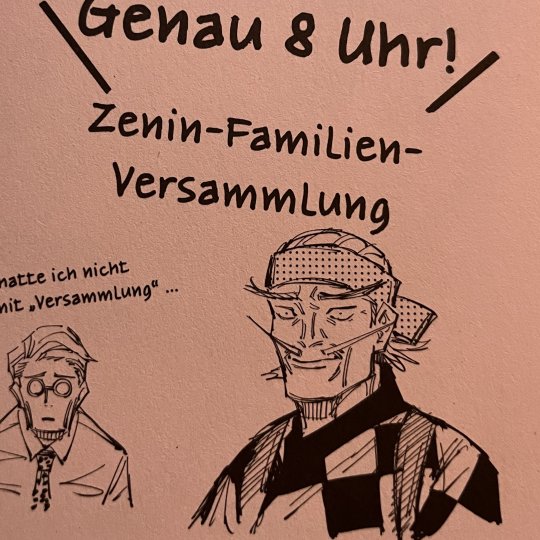
And I wanna drink sake and watch anime with Naobito. And listen to him telling me stories from his 30s in the late 1970s.
Thanks for coming to my TED talk.
349 notes
·
View notes
Text
The official English version of Jujutsu Kaisen Vol. 20 is available now! It includes the bonus comics featuring Yuta, Yuji, Megumi, and Nobara… and Toji imparting wisdom to Tsumiki 😂 😂😂


Love Toji being a bad parental figure no matter what!! 🤣🤣🤣
637 notes
·
View notes
Note
It looks like Megumi is becoming Sukuna's own merger monster. I wonder if Sukuna is even aware of what's happening with Megumi's soul or if he really has everything under control or just winging it. Esp. now that Megumi has hit rock bottom (did he sunk even lower in the new chap?) Is he still slowly descending into the deepest recesses of his soul?
Dang it, I hate Gege for egging us on like this. What's worse is that I feel like we'll be switching on the Hakari vs Uraume fight soon. Like pls we've waited so long, surely Gege won't have us wait how many more chapters for Megumi again right?
Ok guys, my hc is that Sukuna is well aware of what's happening. We saw him share a space with Yuji, I don't see why it would be different w Megumi and I've been wondering why Gege hasn't shown us what Sukuna looks while sharing Megumi's body with him.
And to piggy back off of this ask, it really does feel like a "Megumi is his own worst enemy" situation. Like... that's the clear metaphor wrapping the whole thing up. Because imagine our Megumi talking to this figure that is physically identical to him except for the tattoos and hairstyle.
Now, imagine them having an interaction with each other inside their shared space.
What would Sukuna tell Megumi?

And if you have this figure that looks just like you and knows you intimately, what this is is basically negative self-talk.
GEGE YOU CURSED CAT YOU. LET US SEE HIM AGAIN!
Thanks for stopping by anon! So far we've skipped most of Ura Ume v Hakari, lets hope it stays like that.
7 notes
·
View notes
Text
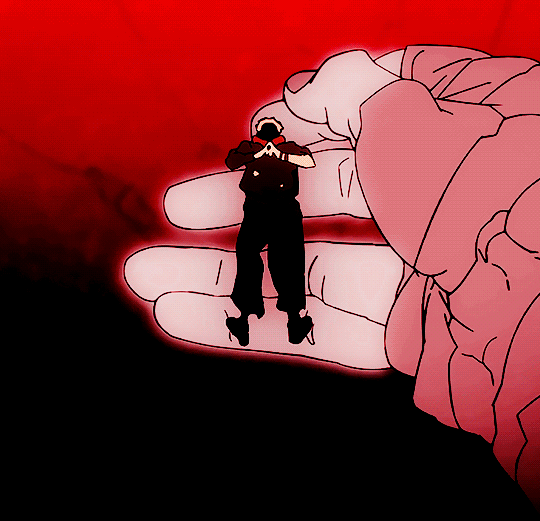


Malevolent Shrine differs from other types of domain expansion in that it doesn't create a separate space using a barrier. The ability to realize one's innate domain without using a barrier is akin to an artist painting a masterpiece not on a canvas, but on air. A truly divine technique. Furthermore, by allowing an escape route, a binding vow is formed, which vastly increases the guaranteed hit's effective area with a maximum radius of nearly 200 meters. Taking Fushiguro Megumi into account, Sukuna narrowed the effect's range to a 140-meter radius above the surface.
605 notes
·
View notes
Text
A Character Analysis on Megumi Fushiguro from a Jungian perspective- The Shadow
"Emerge from the darkness, blacker than darkness. Purify all that is impure"
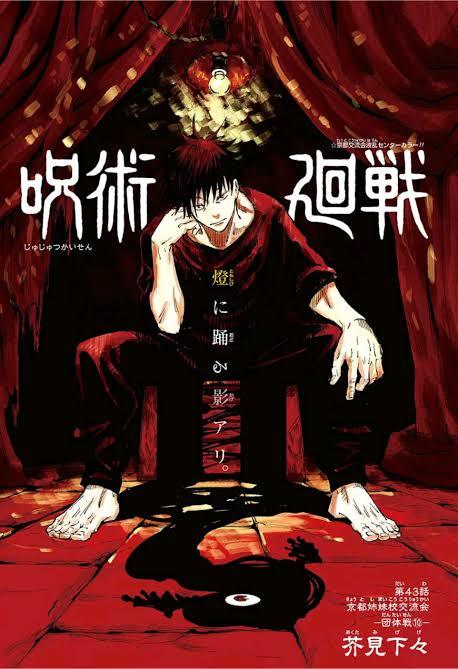
Megumi has been consistently portrayed as someone who really struggles with his self worth or his sense of self but there have been instances when he starts behaving in a really confident and assertive manner.
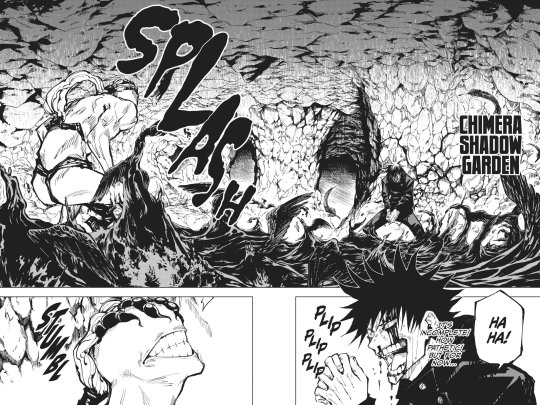
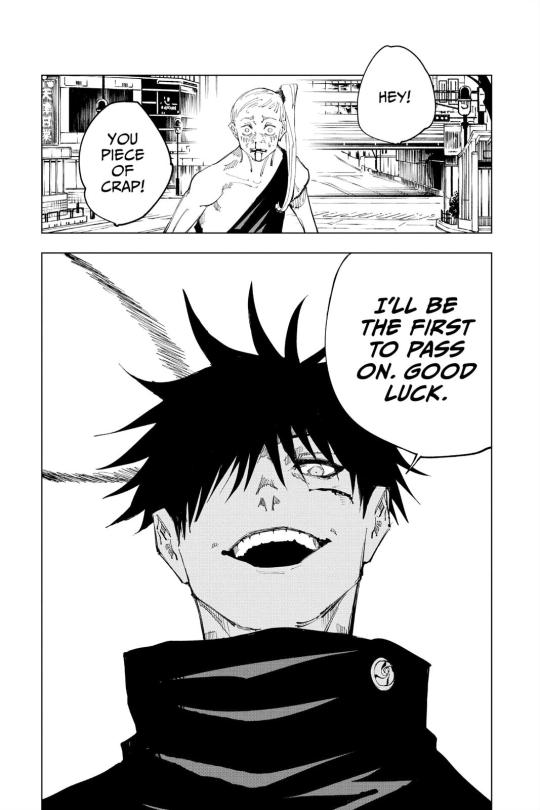
In order to better understand Megumi we need to look at his background. He was basically raised by Tsumiki with Gojo acting as his guardian at times. At a time when a child's personality develops, he had to make a deal with Gojo to work as a Sorcerer in exchange for Tsumiki's safety.
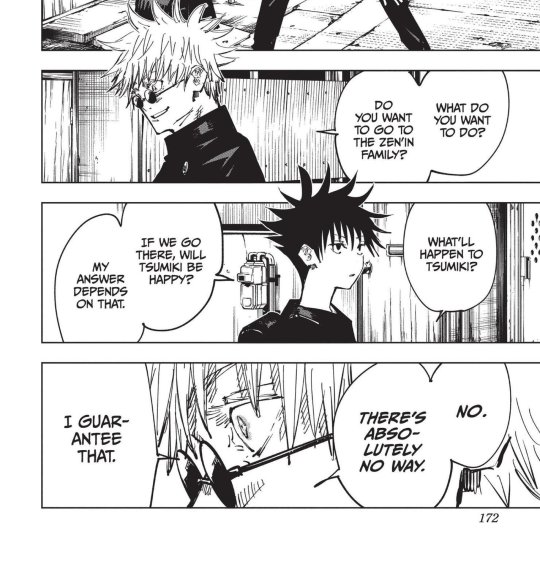
As a child, he had to come to terms with the idea that his father is somewhere out there but he has been abandoned by him when we know this wasn't the case. Toji did his best to look out for Megumi but he couldn't be close to him because he was fearful of the type of influence he would be on Megumi.
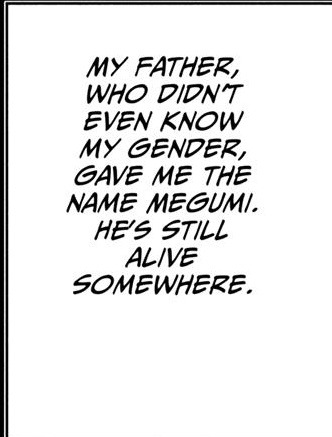
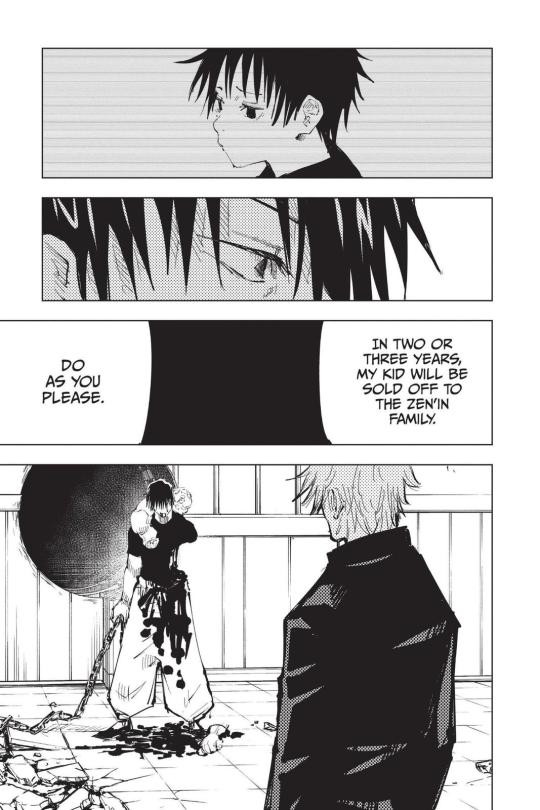
When Gojo tried to tell Megumi about his father, he himself stopped Gojo, acting as if it doesn't matter but that's a literal child, why wouldn't it matter, yet he refrained from trying to know the truth about Toji out of fear. Fear of what if the truth is even worse than being abandoned by his own father.
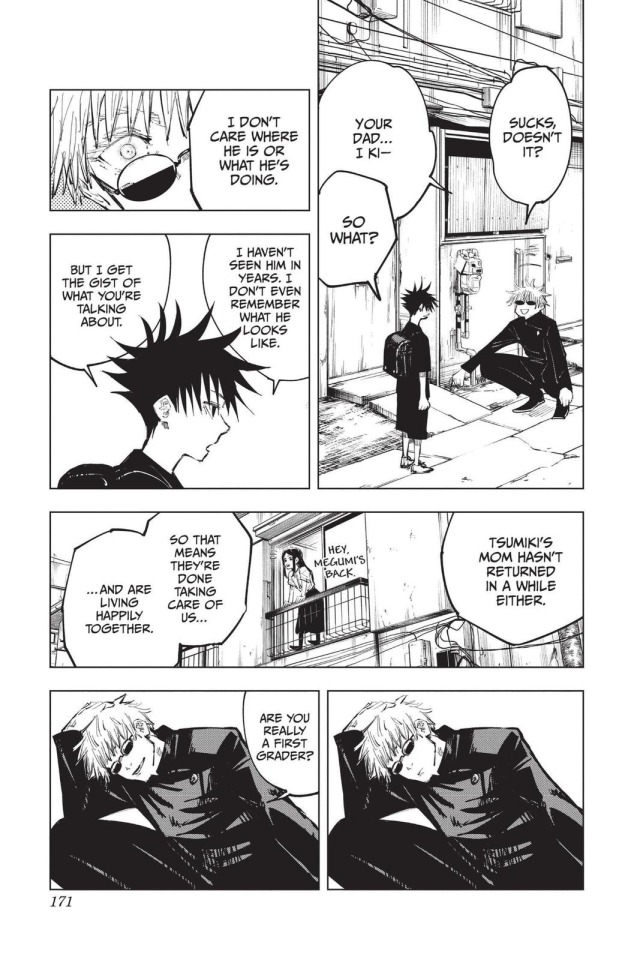
What did the most damage to Megumi was hearing from Gojo that Toji kept him hidden from the zenins to use him as a trump card against them as if he was just a commodity with value , who he is , is just about what is the value of his technique. His own potential crushed him, in a sense took his childhood away from him and halted his personal development.
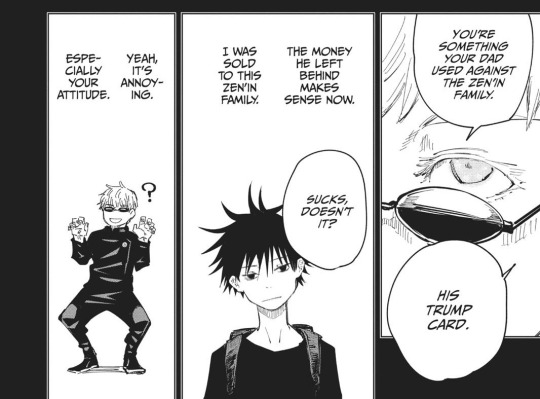
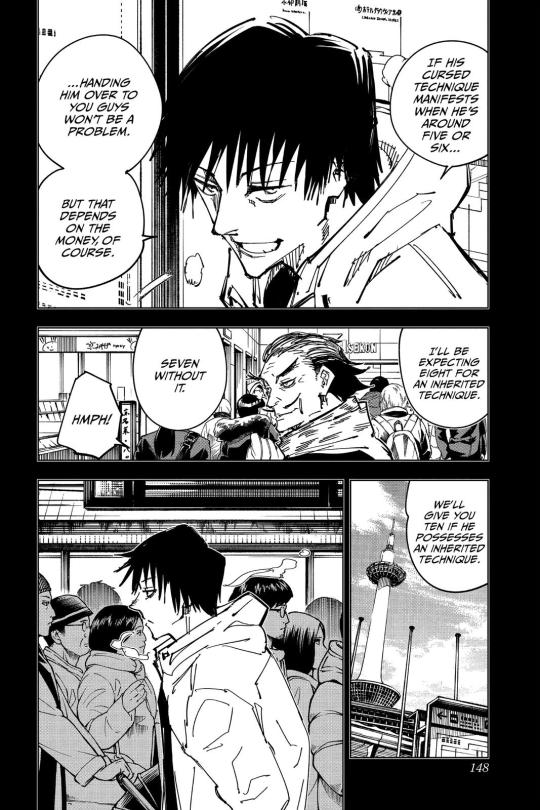
Even Gojo mostly interacted with him in a manner where it looked like he is more worried about Megumi not being strong enough than trying to understand and talk to him about who Megumi is and who he wants to be which isn't because Gojo didn't want to , he just didn't knew how to. Gojo met Megumi at a time when he himself lost all sense of his identity and didn't knew how to relate and understand others on a deep personal level.
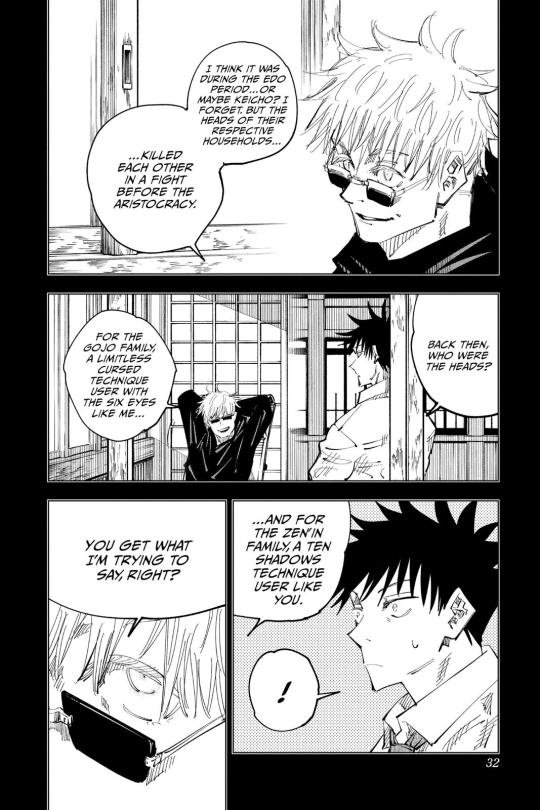
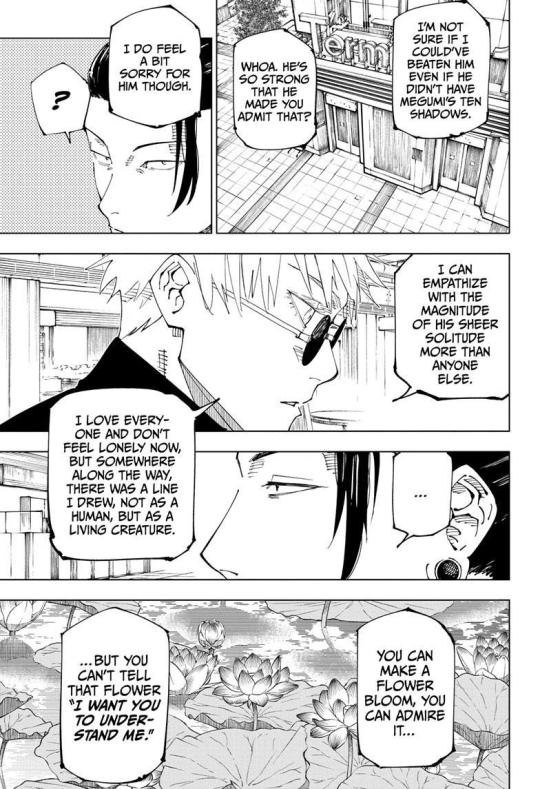
THIS led to the creation of the biggest divide between the persona (ego) and the unconscious (shadow) in Megumi's psyche. The mask that Megumi wears to face the society stored all the aspects of his personality that he doesn't deem good or worthy in his shadow, including his 'Potential' and feelings which is why Megumi looks so emotionally detached from everything . He has locked up his emotions in his shadow, he tries to rationalize everything without accounting for the feeling behind it and thats why his "instincts" are dull.
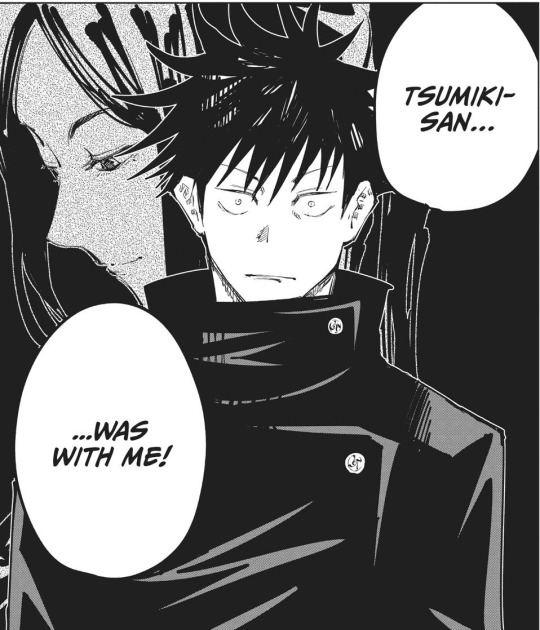
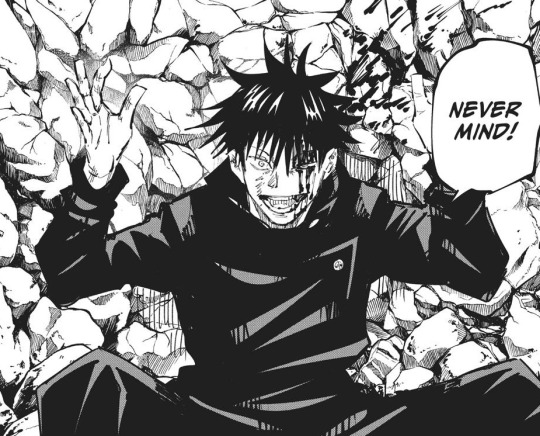
Megumi's persona Megumi's shadow It's because he felt like an empty vessel with a technique that he objectified the only person he looked up to, Tsumiki. He viewed her more as someone whose goodness and purity needs to be protected than as an individual, he didn't let her reach him, himself acknowledged how immature he was, all a result of the deeply traumatized 'inner child'.
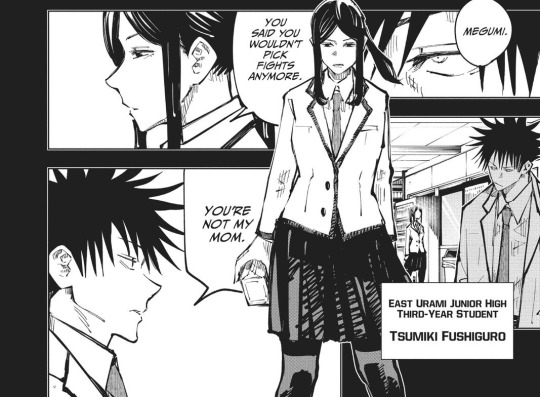
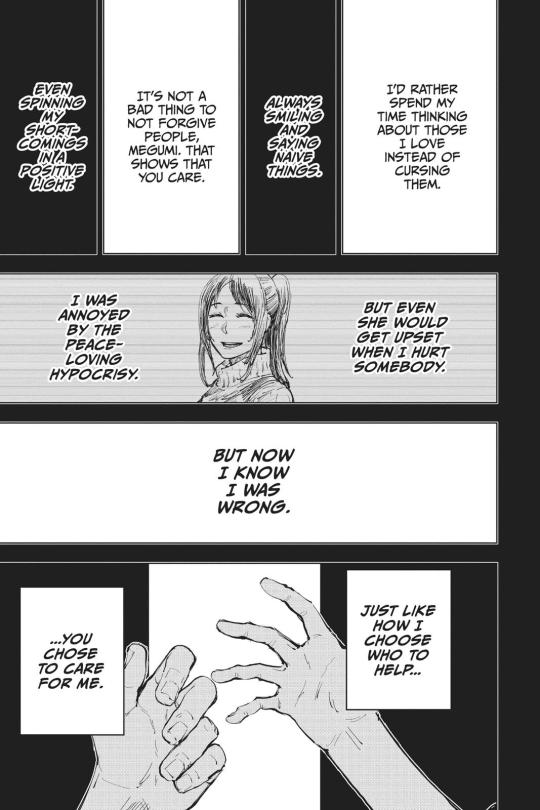
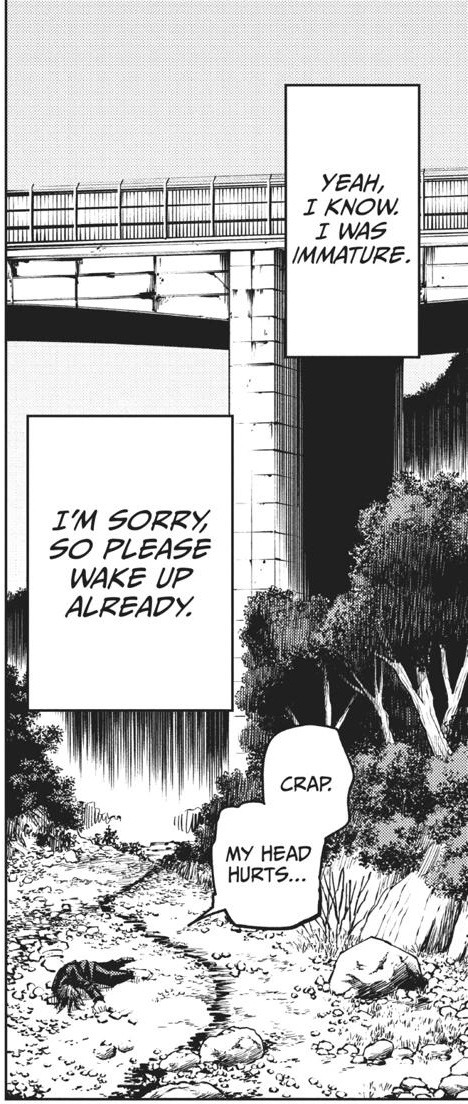
It's interesting how inner child was also used for a character who was introduced during Megumi's colony fight, Takaba. Both Megumi and Takaba ignored the "inner child" within them, except with Megumi, his ignorance is the result of an absence of childhood.
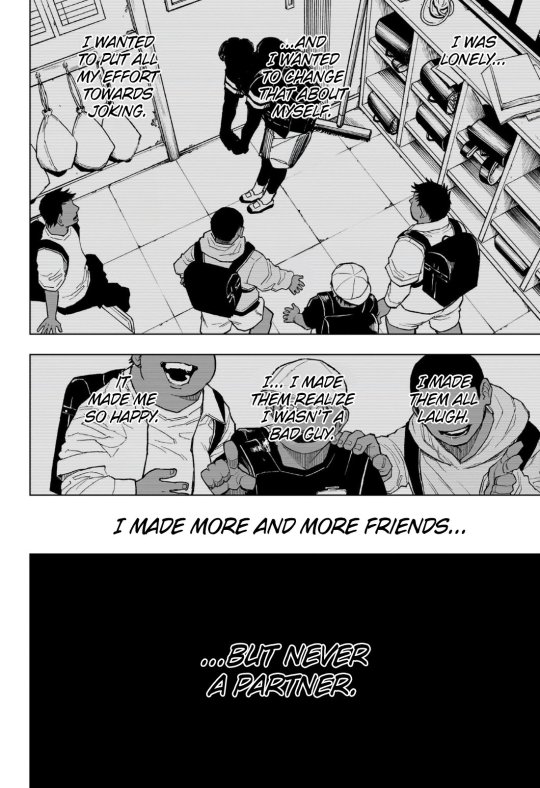
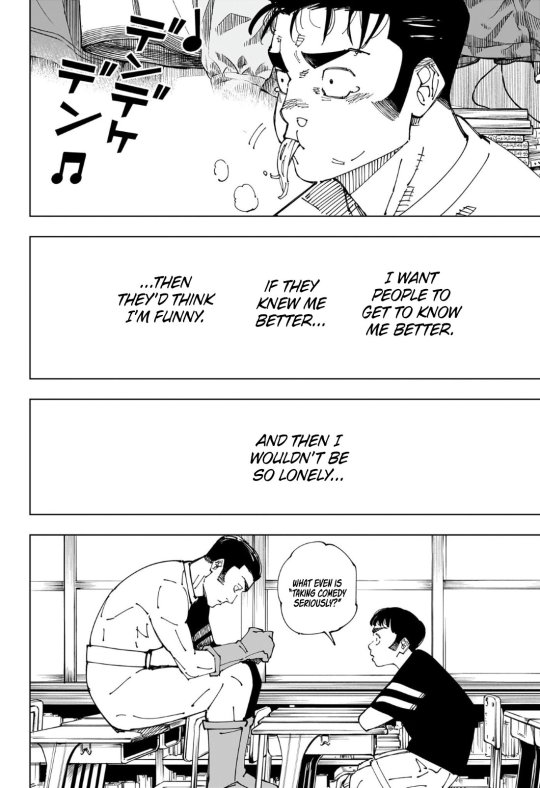
Megumi's fixation on saving Tsumiki got to a point where his own shadow took Tsumiki's form or this could actually be Tsumiki's own shadow that is connected to Megumi. The Shadow that influences him yet he isn't aware of its existence.
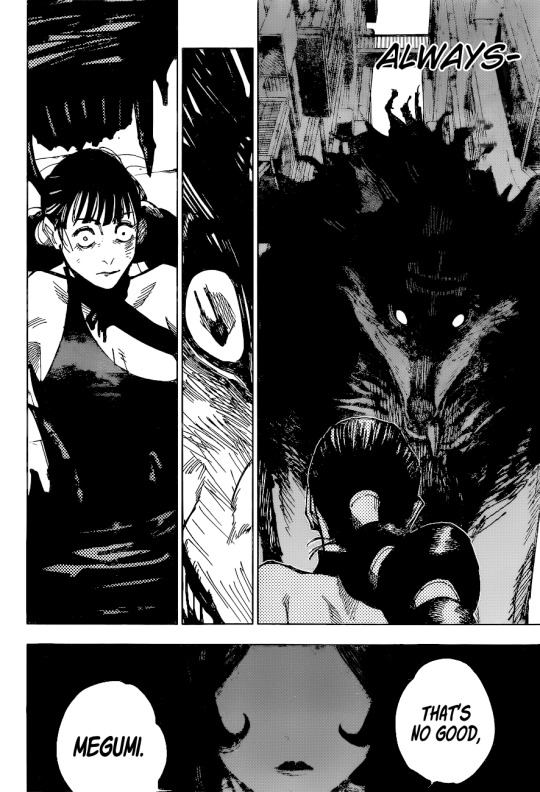
What Megumi is going through is described as "Dark night of the soul" in philosophical terms. It is the longest and darkest night of the soul where the soul is at its lowest, the will to exist ceases, however it is also the moment where divine light shines above oneself to guide them out of their suffering (How Gege depicted Megumi's condition). I think it's important that Megumi's birthday is on 22nd Dec ( winter solstice) the longest night of the year which in Japanese is called 'Toji' . Perhaps some intentionality on Gege's part to show how Toji is the core of Megumi's trauma.
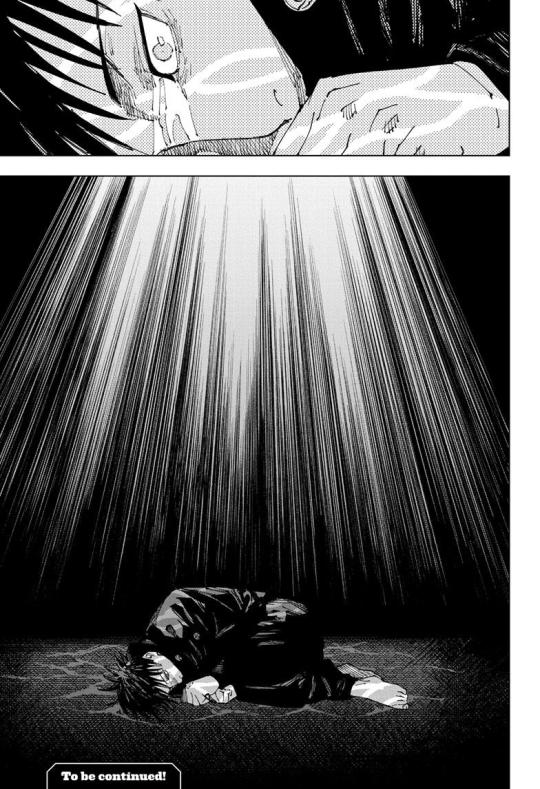
Dark night of the soul But what lies ahead ? I believe the process of 'Individuation' , theorized by Carl Jung it's the process by which a person achieves psychic wholeness, recognizing his innermost uniqueness and he identified this process with becoming one's own self Or Self realization. It's the merging of the Persona and the Shadow
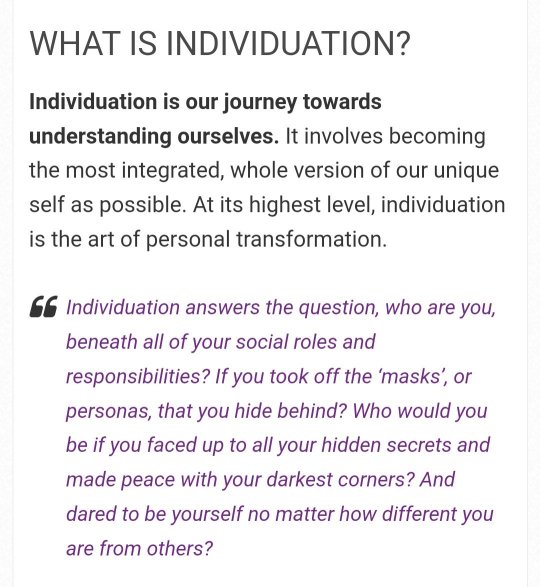
A personal "Merger" of sorts in Jjk's context and i believe Megumi's arc had already been foreshadowed in chap 47 through the introduction of 'Totality'. The 2 divine dogs represent the dual aspects of Megumi's Self. The White Divine dog is the Ego or Persona, first the ego dies but it doesn't disappear , it dissolves into the existing shadow (Black Divine dog), merging with it to create the 'whole' of SELF 'with no boundaries' between the Ego and his Shadow (Fate)
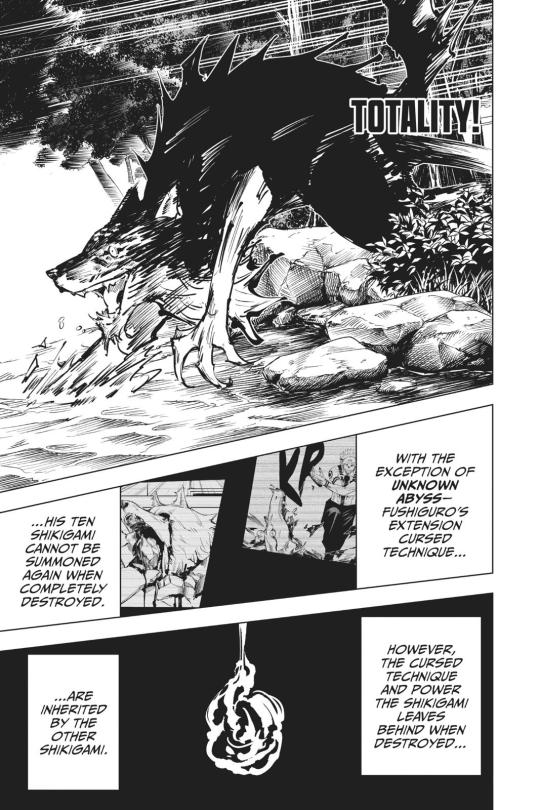
Totality (Individuation or merger of Persona and Shadow)

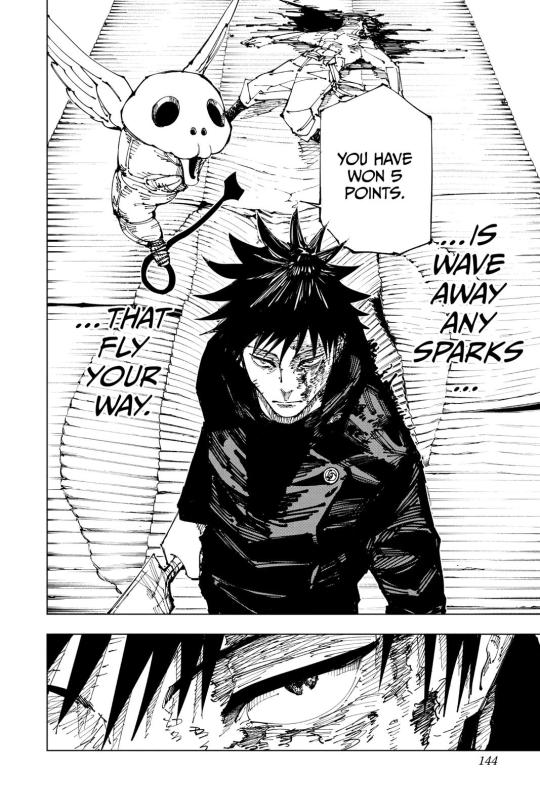
Ego death The shadow self In order to find his life , Megumi first needs to lose it. He needs to bring forth his Deepest shadows and stop suppressing them because the True self is not Black and White, it's a hint of Grey. It's not just Tsumiki or Yuji who are good and pure , His own shadow that he deems evil has purity as well This personal merger is the route to 'Love' , Love of the self. To stop ignoring the inner child and his own shadow that Megumi has suppressed constantly . To stop looking for Logic behind everything as he is a human, we value our feelings, they are our fuel.
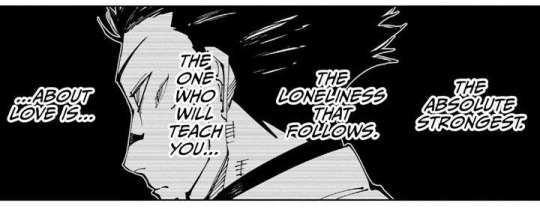
The dormant feelings that need to be realized and this is where Yuji comes in. When he says he wants to save Megumi , it's not because of Megumi's value or his technique, it's because he genuinely cares about who Megumi is and wants him to grow out this personal nightmare.
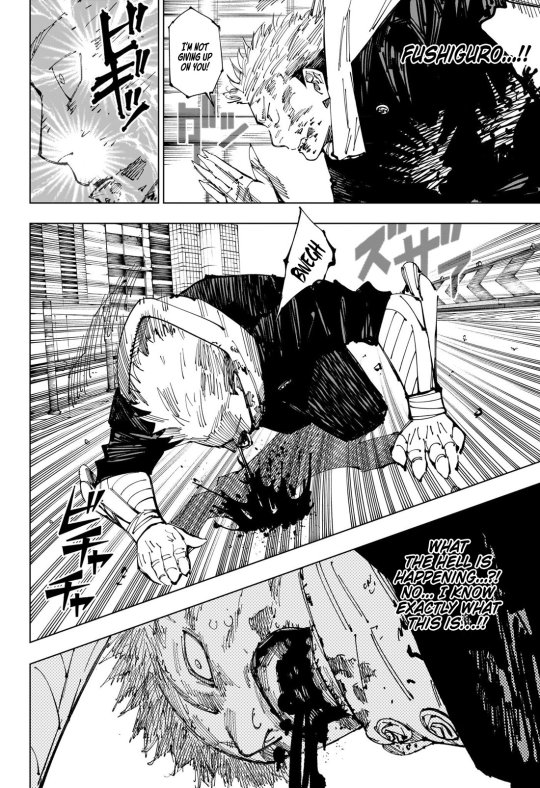
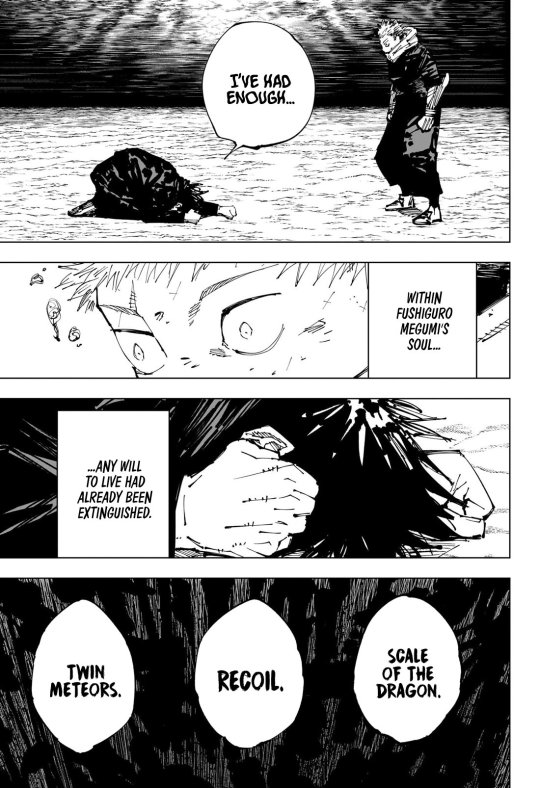
This can lead to Megumi conversing with his shadow and realizing that people do care about him and he needs to show the same care to his shadow and let it invoke the feeling within him Ultimately Megumi is a product of this 'cycle of curses', being the son of Toji who was himself deeply traumatized and Gojo being his guardian who himself was never whole. Gege always tries to explore the Self, the person that was Satoru Gojo, the person that is Megumi Fushiguro, not "the Strongest" or "The wasted potential"
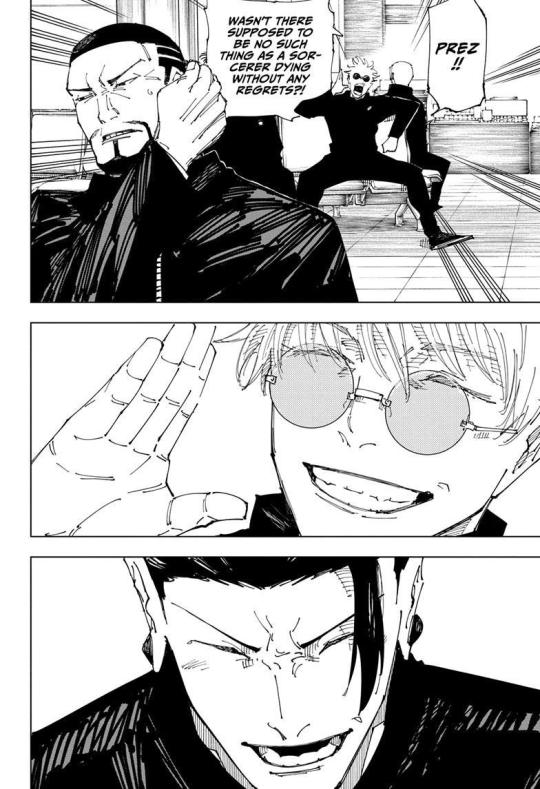
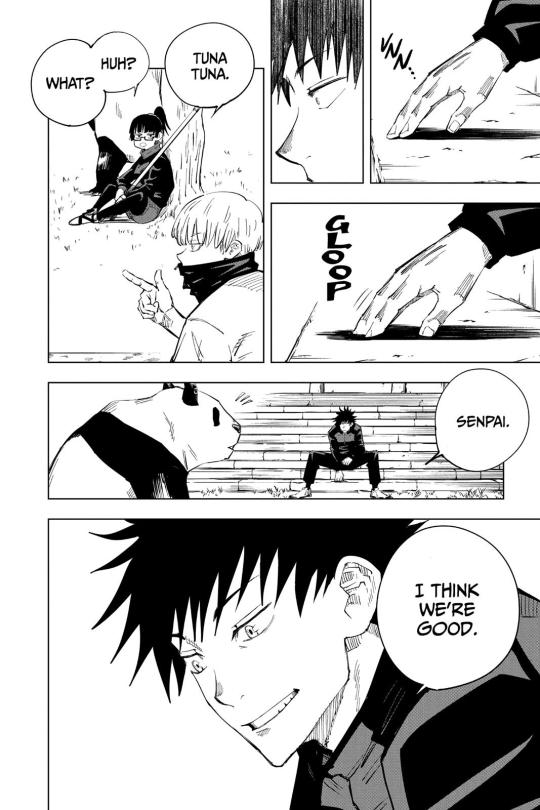
This is why I think Gege has masterfully constructed Megumi's character in a real subtle manner. He never really talks about himself or how he feels and that leads to a big chunk of the fanbase paying no attention to who he is as a character and only focusing on his potential which is Megumi's EXACT problem. What's interesting is that i always thought of this sort of individual merger for Megumi's arc but now he holds the keys to the completion of the merger between Tengen and Non Sorcerers in Japan as well . Gege always knows what he's doing !!
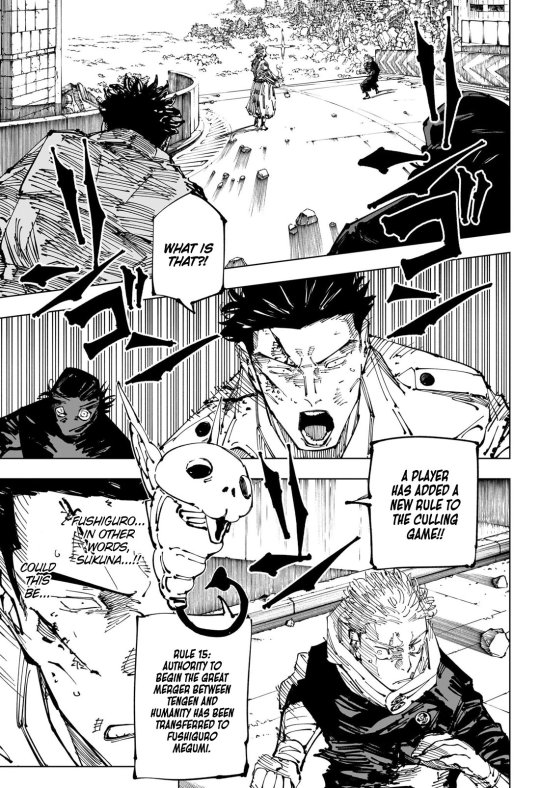
95 notes
·
View notes
Text
The Other side and Fate
A #JujutsuKaisen theory on The Other side and Fate. This will be a continuation of my previous theory about the 9 levels of consciousness and particularly the 8th level (Storehouse consciousness.
In JJK , Gege makes use of a lot of ideas and words with Buddhist connotations. The Title for Chap 211 was 'Ripen', now the usage of this very term alludes to 'Ripening of Karma or Karmic seeds'. But what are Karmic seeds ? The Karmic seeds (Bijas) are said to be the impressions, Habits and tendencies accumulated throughout one's countless lifetimes. The Storehouse consciousness or Alaya is the repository where these Karmic seeds are stored. These seeds are the very basis or foundation of our personality, the deepest layer of our consciousness
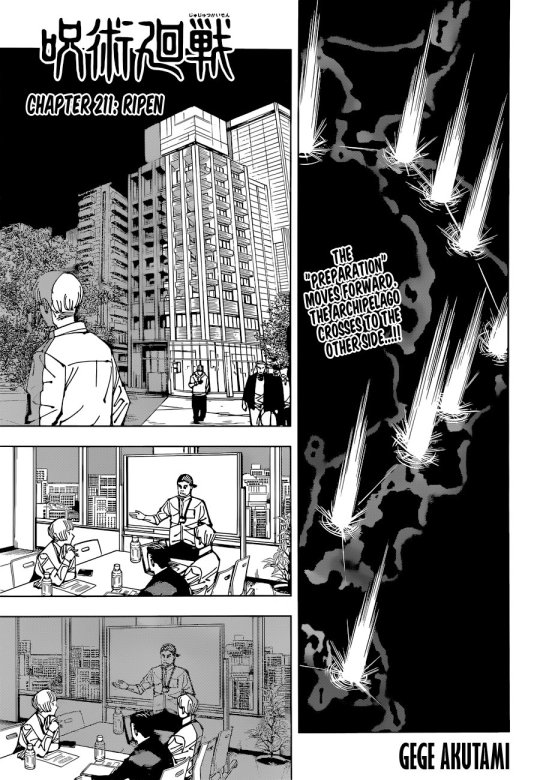
HOW our senses will perceive the world , our inherent bias all comes from the storehouse consciousness. In JJK i believe Megumi's shadow IS the storehouse consciousness, notice how Megumi can literally 'store' weapons and even himself in his shadow.
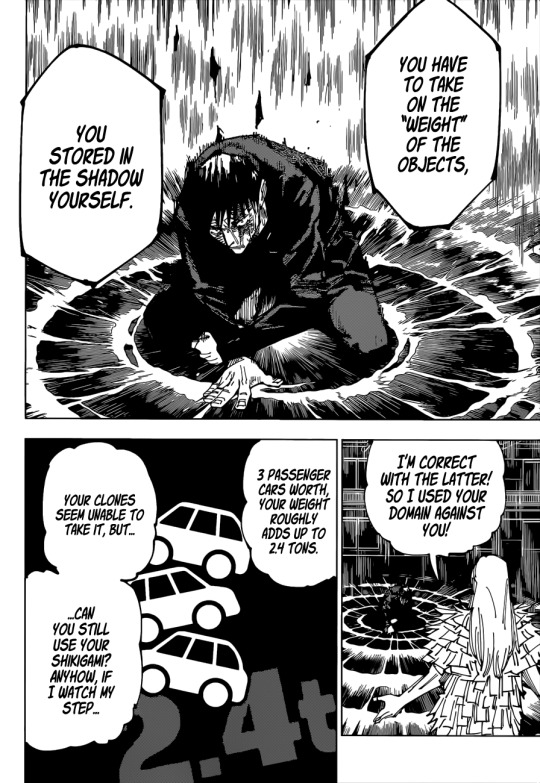

The idea of Ripening of Karma means that under the right situations and circumstances, these Karmic seeds constituting past thoughts and experiences have the potential to 'ripen' into future actions , emotions and thoughts. Even Megumi's domain name Chimera shadow 'garden' alludes to the idea of the shadows constituting the Karmic seeds
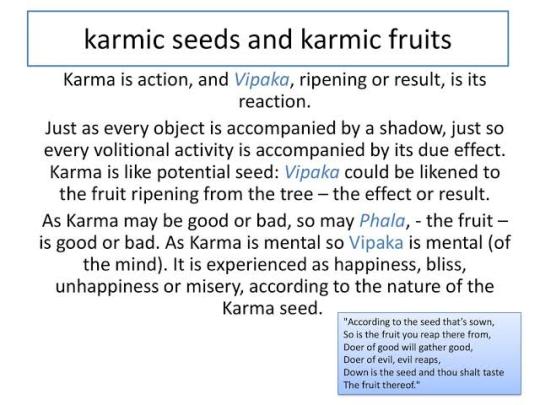
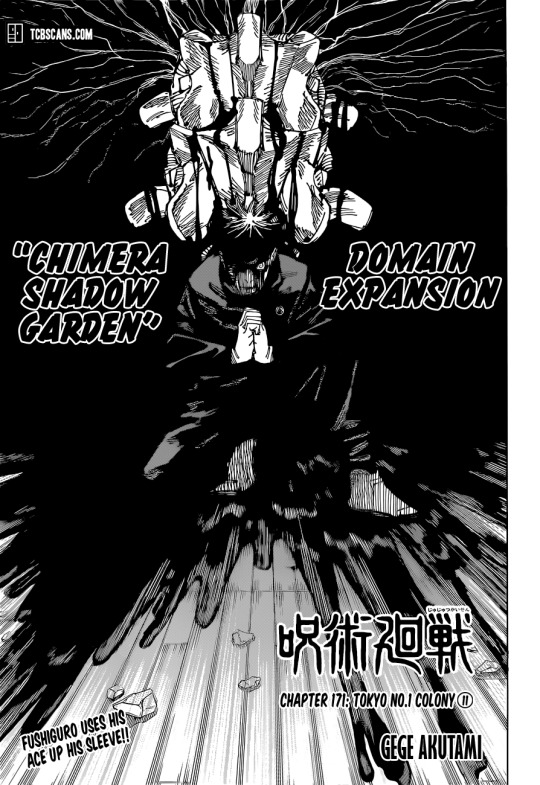
This philosophy of storehouse consciousness is analogous to the western idea of the subconscious or more accurately the 'unconscious' and in terms of depth psychology this idea of the unconscious brings us to the concept of "The Shadow". The Shadow is a part of the Model of psyche (soul) proposed by Swiss Psychiatrist Carl Jung whose works , i believe are one of Gege's primary inspirations. According to Jung the psyche is divided in 3 main parts:
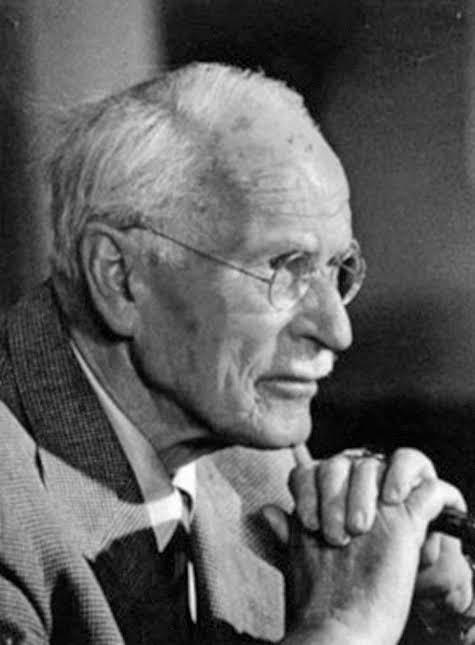
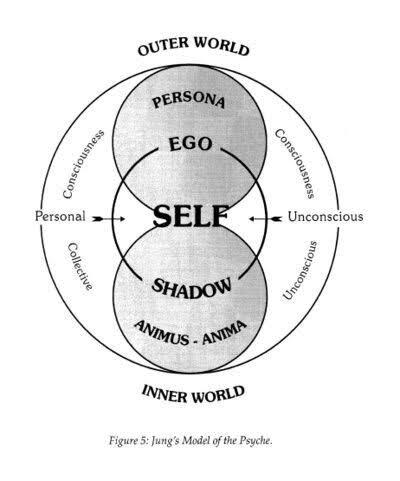
1. Persona (Ego) : It is the aspect of one's character or soul that is presented to or perceived by others or rather 'society'. The outer or assumed aspect of character, it's the mask we wear to create a bridge between our self and fulfilling societal or worldly expectations. It's the Ego we cling to.
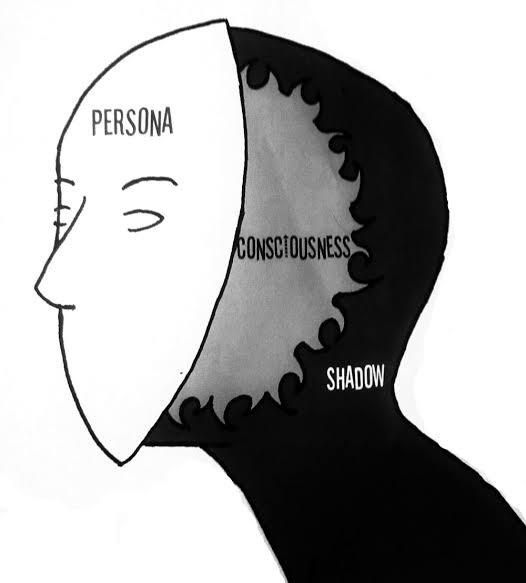
2. Personal unconscious (Shadow): The Personal Unconscious is located at the fringe of consciousness, between 2 worlds. The external or spacial world and the internal or psychic world. It refers to the information and experiences of an individual's soul that have been forgotten or repressed but continue to influence their behavior and attitudes on an unconscious level , It is also what you call the archetype of "The Shadow"
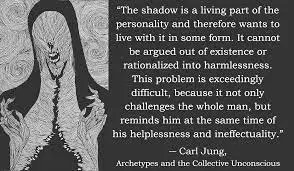
Before moving to the final part of the psyche let's look at how the persona and the shadow operate on a micro or individual level. Every person creates an identity for themselves based around the concept of persona or ego , influenced by the information received through sensory input (First 6 levels of consciousness which i mentioned in the previous thread) and societal expectations but this is not the core of their soul, it's performative.
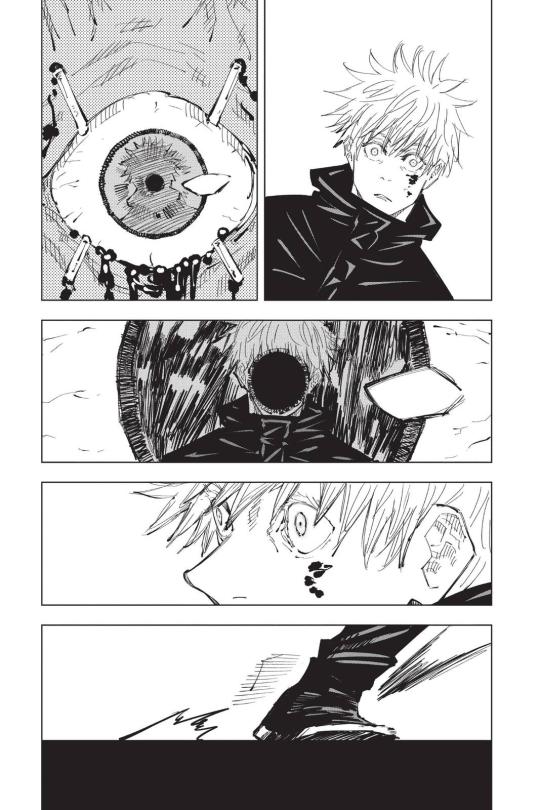
The true essence and nature of the self comes from the shadow of the karmic storehouse as mentioned above, HOW we differently perceive the same world occupied by others is caused due to the nature of our shadow but this is the part that is hidden from us, we suppress and ignore it. It's the most alive part of the soul yet is treated by an individual as if it's dead and nonexistent , this illusion of confirming with the persona and ignorance of the shadow causes a disparity within the Self
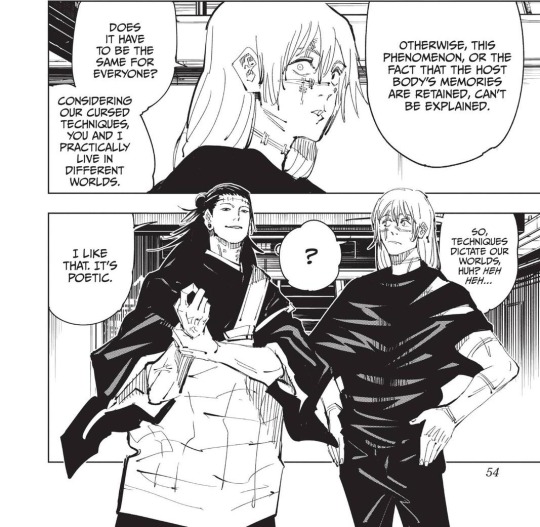
This disparity causes suffering and this very suffering is Humanity's Curse. All these traits that one considers to be negative are hidden here but we also lock away our truths which is why Jogo said "They are the Real humans" born from humanity's truth, their shadow, their karmic energy.
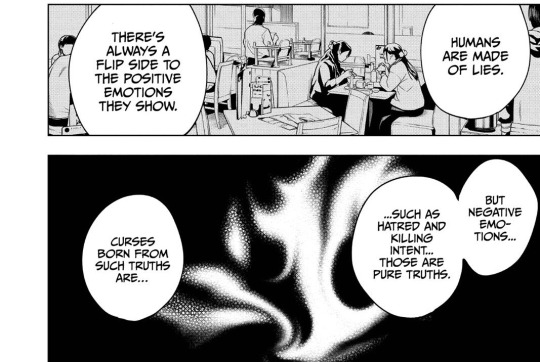
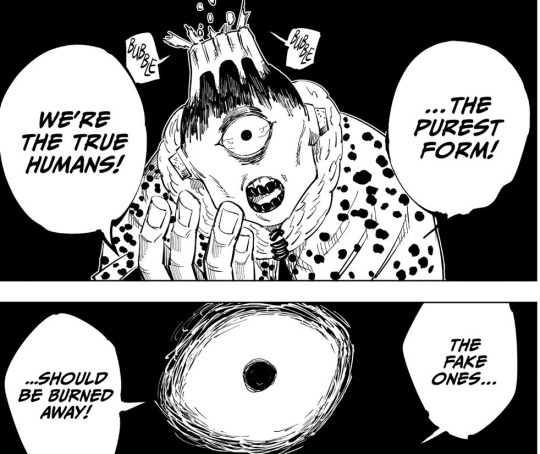
This shadow is also what Gege refers to as "The other side". The other side of our soul and that's why the motif of evolution and enlightenment is attached to it, Culling game creates the favorable conditions for humanity's karma to ripen and takes them to meet their other side, their truth. Nirvana or the other side isn't a physical place , it's a state of mind that can be achieved right here, right now

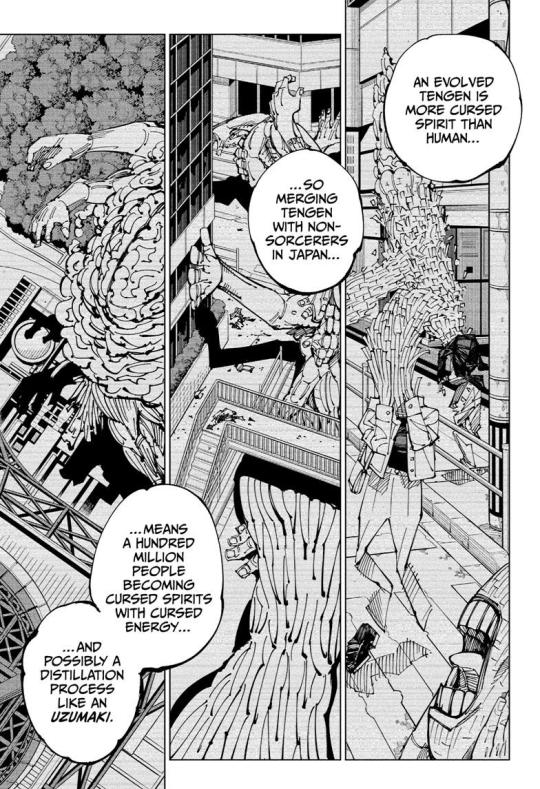
3. Collective Unconscious (Collective shadow) : the primordial grounds of unconscious from where all personality traits originate and return to , it's what I think Jogo referred to as "the wasteland". This is where archetypes are formed, where the personal shadow takes birth. This collective shadow evolves with time, constantly changing, impacting the personal shadow which impacts the Self of an individual.
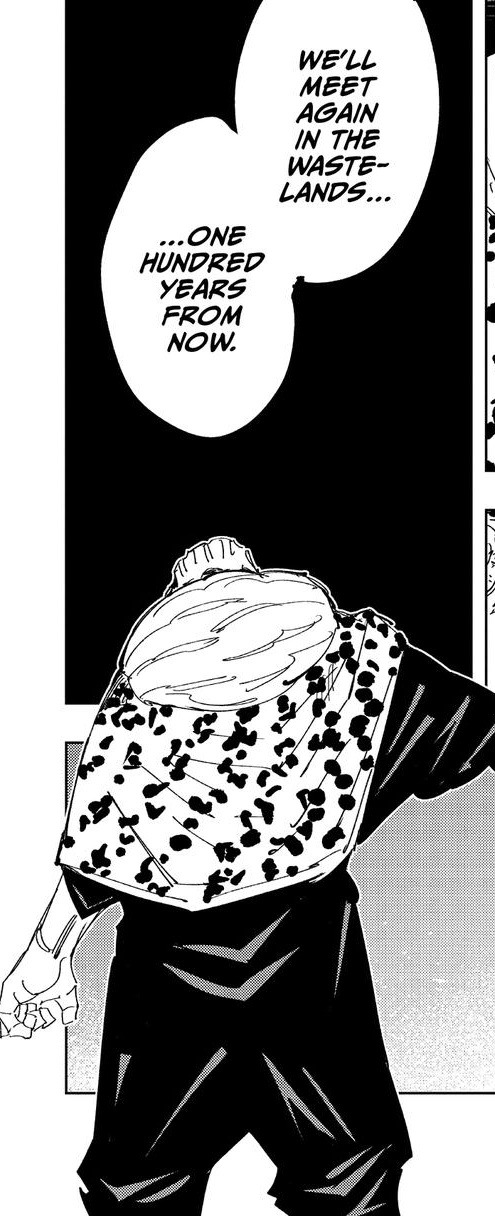
This is also the space that Kenjaku and Sasaki inhabited in chap 160. Remember this vol 23 Pv ? Look at how there seems to be a different form of existence that is active at night (the big eyes and the shadow).
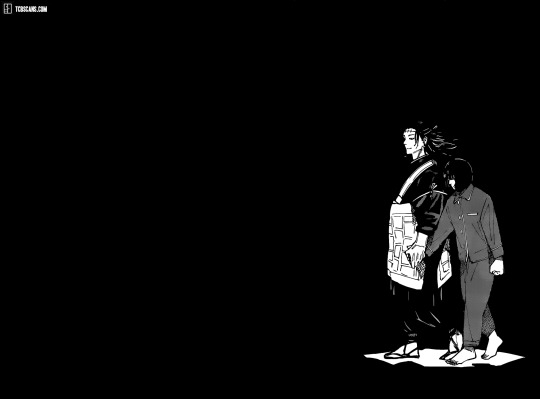
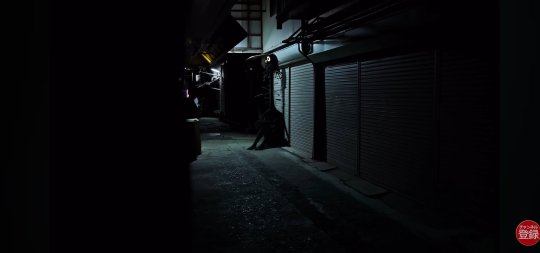
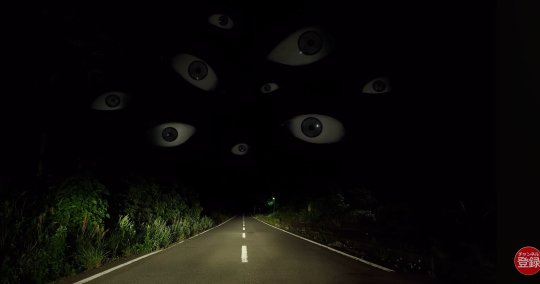
While one is asleep, the shadow self is awake. It sends messages to guide and control them through the medium of Dreams. Humanity's actions are instigated by their shadow which arises out of the collective shadow and this form of control is what JJK refers to as 'Fate'.
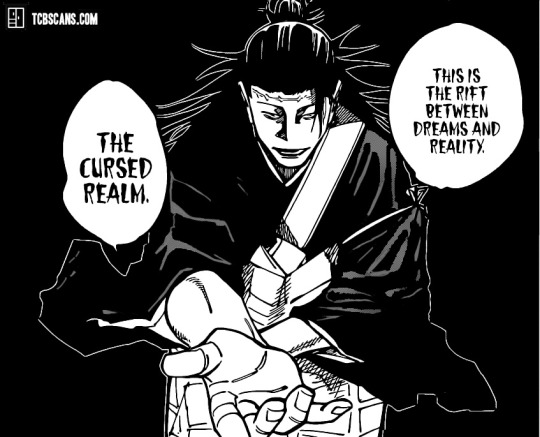
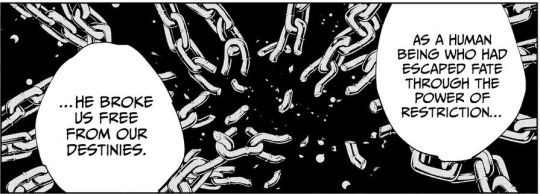
Now the inclusion of fate doesn't mean that it is supposed to predetermine every action and extinguish free will. It's a form of test and this is where the difference between fate and karma comes into play. Fate is the set of cards given to one based on their previous karma , how they choose to play with them is their present karma offering them a chance to be free of their fate ONLY if they could recognize their shadow and accept it and this acceptance is 'Love' in JJK's context.
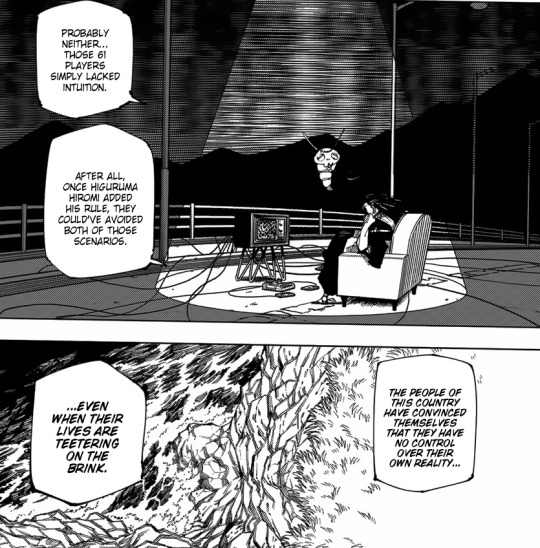
Kenjaku talking about the impermanent nature of Fate or Karma
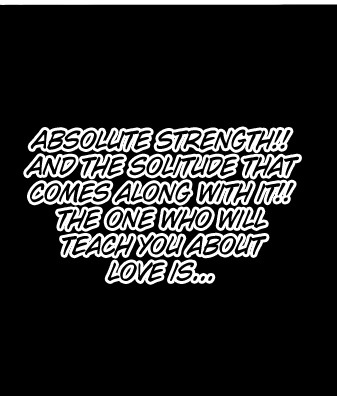
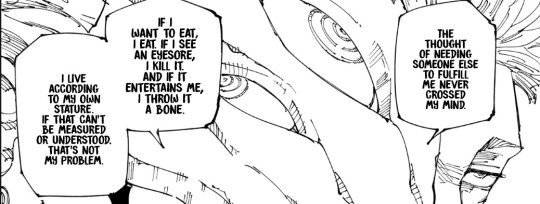
The concept of love or understanding, the love of Self The collective shadow is ultimately the repository from where parts of the soul that humanity ignores originates, this collective shadow IS what Gege refers to as "Evil" in JJK, what Sukuna wanted to get close to through "The Bath".
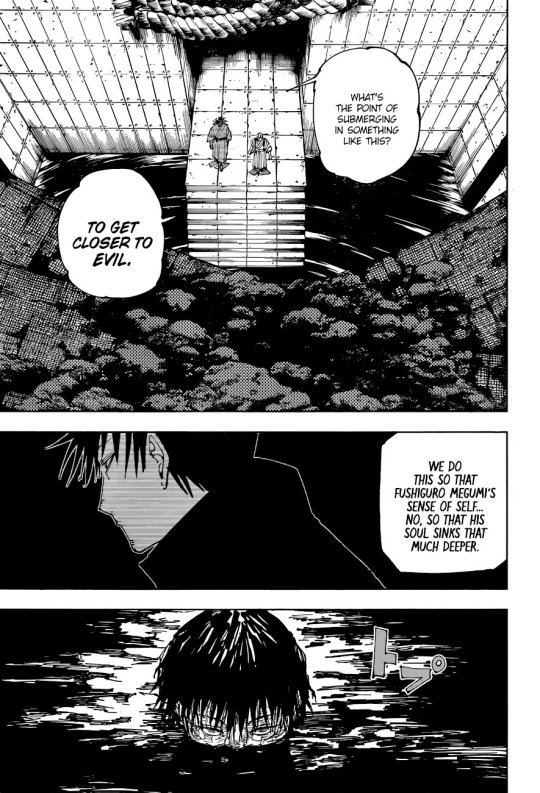

Jung once said "Until you make the Unconscious conscious, it will control your life and you will call it fate" which summarizes the concept of Fate within the framework of Jujutsu Kaisen.
I'm honestly not very sure if what I've said in this thread and the connections i made will turn out to be true but it was fun to write and share this and i intend to continue this theory. Yeah...there's even more that i want to add later on. Thanks for reading.
19 notes
·
View notes
Text
Megumi's entire arc from the very start has been about the personal merger , Gege akutami has now made him the centre piece of the whole collective merger plotline. I intend to elaborate on this later on but either Gege is way too clean with his writing or I am delusional and I make unnecessary connections which is very possible😭
2 notes
·
View notes
Text
I try to be as unbiased as possible but i genuinely don't see how i can ever like a JJK character more than Megumi, his character speaks to me a lot
3 notes
·
View notes
Text
The nature of cursed energy, after death sequences and a possible inspiration from Tibetan Buddhism & Tibetan book of the dead
"Nine points. Polarized light" A theory on the nature of cursed energy, after death sequences and a possible inspiration from Tibetan Buddhism & Tibetan book of the dead (Bardo Thodol). This is the 1st part of a long theory that I intend to cover in multiple parts
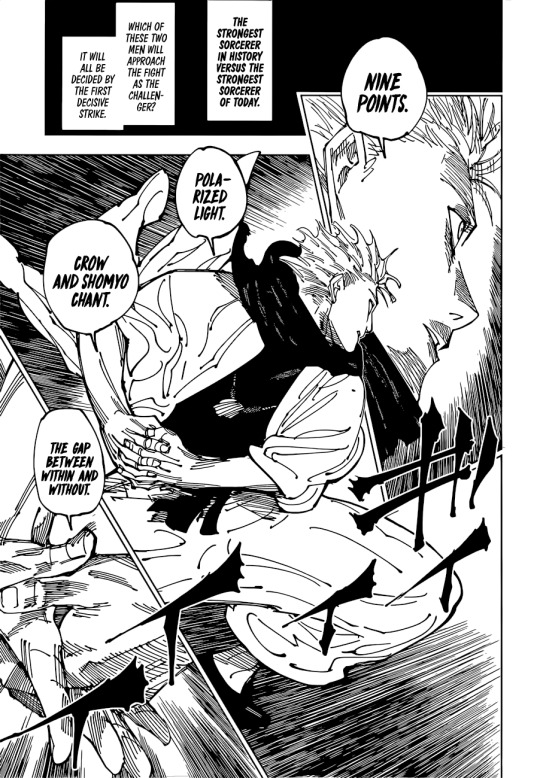
Gojo's chant
The Tibetan book of the dead, also known as Bardo Thodol is a sacred text guiding souls through the afterlife. Rooted in Tibetan Buddhism, it's a profound exploration of life, death and the transitional state between ( Bardo) . The origins of Bardo Thodol can be traced back to the 8th century when emperor Trisong Detsen directed Indian buddhist master Padmasambhava (lotus born) to bring the Buddhist teachings to Tibet. Also known as 'Guru Rinpoche' he brought the teachings of Bardos ( state between Death and Rebirth)
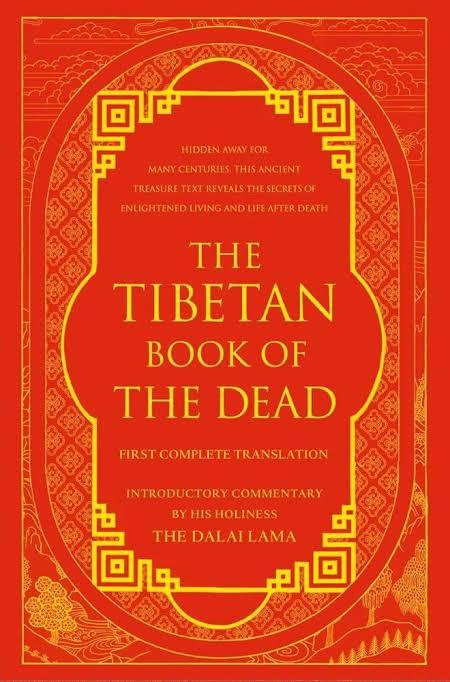
Tibetan book of the dead
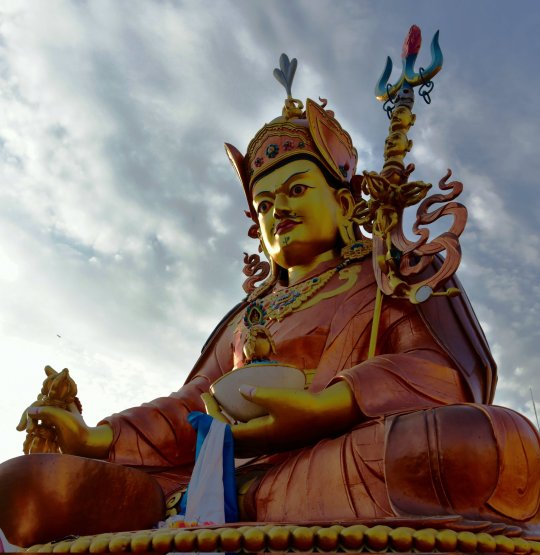
Padmasambhava Physics states that energy can neither be created nor destroyed, While we're alive a pattern of energy called consciousness or the 'mind' flows within our body that we identify as ourselves. But what happens after death ? This energy is no longer associated or anchored by the Physical body. It now floats, freely. In JJK the physical body is also like a barrier for the soul / consciousness which is why the innate domain or inner world manifests within a barrier or outline through a domain expansion.

Body acting as a barrier for a domain Once consciousness is loosened from any barriers ,Thoughts have no limitations set for them. "In life you make the mind , in death the mind makes you" what does this buddhist saying mean ? For ex- suppose you want to visit a place, while alive you have to follow the whole process of travelling to visit it. After death , the mere thought of visiting it will take you there (the dream realm version of it). This seems like a Fascinating concept until you think about the negative thoughts that one might have. Thoughts that while alive are slower in realization by the physical limit of the body, thoughts that in death will become your reality instantly, sometimes in rapid unending succession. This is why Buddhism places heavy emphasis on mental purification while you are alive, achieving the state of enlightenment and learning the illusory nature of one's consciousness before they Proceed to afterlife. The mind forms that one entertained or clung to while alive that manifest as body-less consciousness after dying in the dream realm are called 'Bardo'. Bardos are formed by the 'Karmic energies' or repeated thoughts one accumulates during their lifetime.
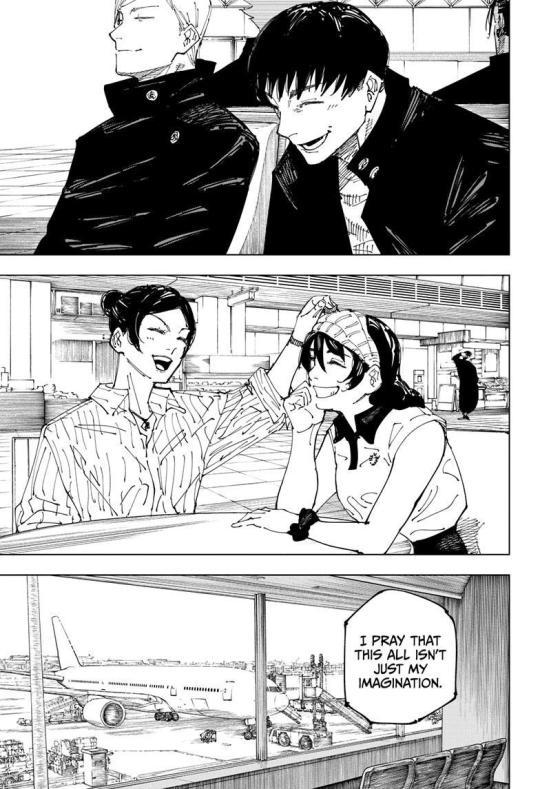
An example of the transitional state between death and rebirth (Bardo) Bardo Thodol's main purpose is to make practitioners aware of the unreality of what manifests as bardos post death. The concept of Karma refers to one's action but not merely action , Karma includes your thoughts, deeds and words. As mentioned above , the Buddhist belief is to purify the mind pre death but most if not all are unable to attain such mental purification, hence the karmic energy is inherently negative when it leaves the body, this karmic energy IS cursed energy. While passing through the state of Bardo , the deceased experiences visions And hallucinations influenced by their karmic energy they accumulated while being alive. If the deceased can recognize that these visions are illusory, let them go, they will attain a better birth and ultimately Nirvana.

Mention of karma in JJK
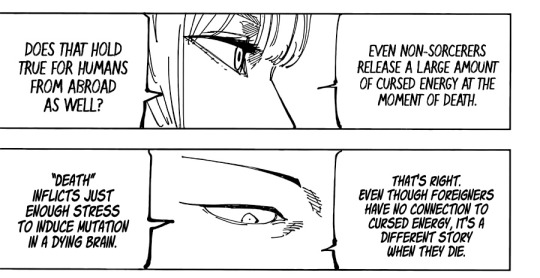
Even people outside of japan release karmic energy ( Cursed energy) In JJK, rebirth and attachment to one's consciousness is presented by the concept of North and South directions. North meaning rebirth, South meaning being chained to your Karma.
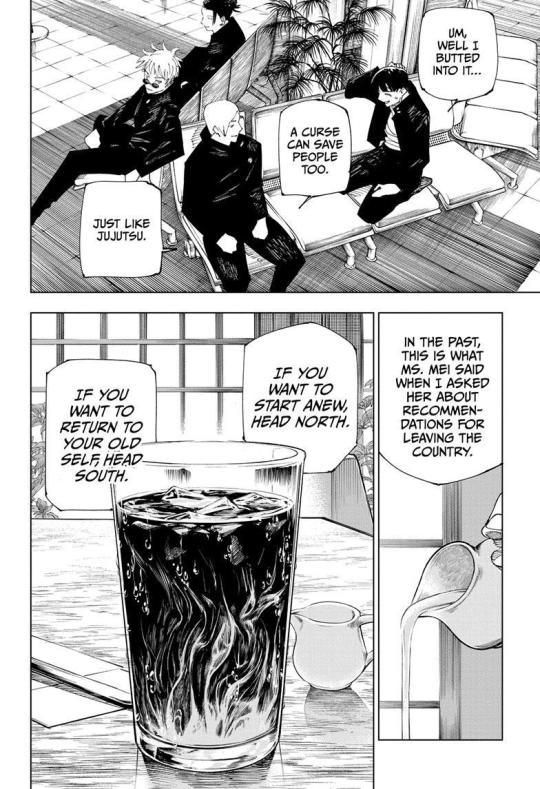
The idea of North and south pertaining to rebirth and clinging to your past self
There are mainly 3 sections of the Bardo state-
Chikai Bardo ( Bardo of the moment of death) - this occurs at the exact moment of death .According to Buddhist beliefs individuals may experience a profound luminosity or a clear light. The teachings suggest recognizing that clear light

The core of cursed energy (Consciousness) that Gojo experienced right at the moment of death represented with a luminous light 2. The Chonyid Bardo ( Bardo of the intermediate state of visions) After death in this state individuals may encounter various visionary experiences which can be pleasant or terrifying, the experiences are the reflections of one's karma and mental projections, individuals are said to have been visited by either deities or their loved ones in this state.

Gojo visited in his Bardo state by his loved ones

Kashimo in attendance of a deity (Sukuna) in his bardo state 3. Sidpa bardo (Bardo of Rebirth) -it refers to the period between the end of Chonyid Bardo and the time of Rebirth, in this phase the consciousness seeks a new birth guided by it's karma and desires, individual is drawn to a new existence ( Someone choosing to go North) The idea of Bardo is recognised in a broader sense in Tibetan Buddhism, various transitional states like when you dream or meditate, the state of Bardo is akin to a mental high or Trance. It's similar to NDE's ( Near death experiences) where survivors often experience a profound sense of peace and blissfulness.
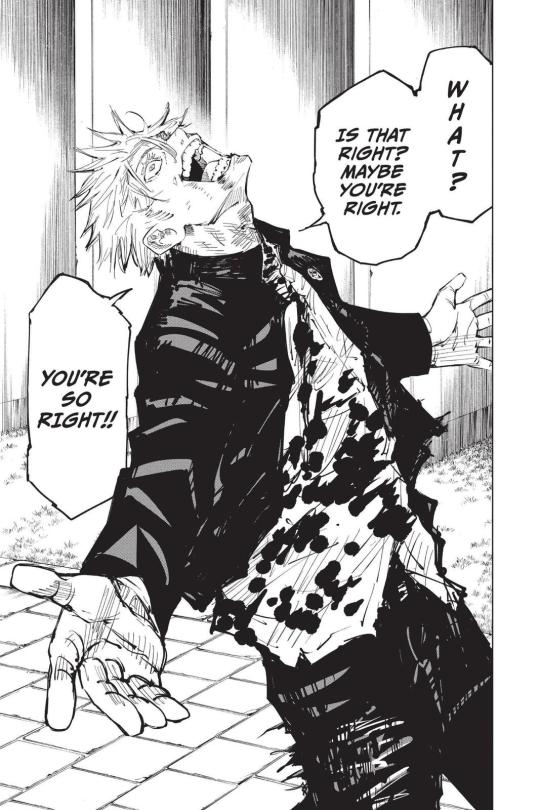
Gojo feeling a mental high after experiencing the core of cursed energy (Chikai Bardo) As for why i started this thread with the words used in Gojo's chant, I think "Nine points" refers to the Nine levels of consciousness in Buddhism, 'Light' is often referred to as pure consciousness across multiple cultures and religions , the 9 levels of consciousness are - The first 5 levels ( the 5 senses of the human body) Touch, taste , sight, hearing and smell. The basic layer of consciousness formed from physical sensations, what Heavenly restriction heightens
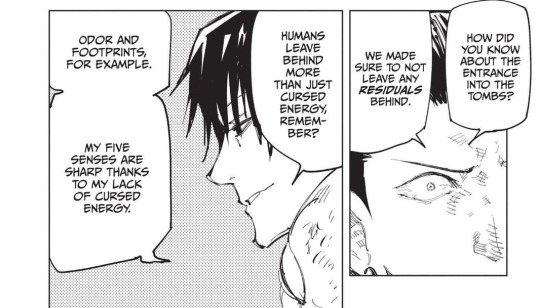
Heavenly restriction's impact on the first 5 consciousness, possibly a binding vow that sacrifices the latter levels for heightening the first 5 The 6th level - where one understands what is being taken in from the 5 senses It's the ability to perceive and judge things , it's the ability to process information. This level integrates all the sensory input from first 5 consciousness . Perhaps that's what 6 eyes are, mastery over the 6th consciousness
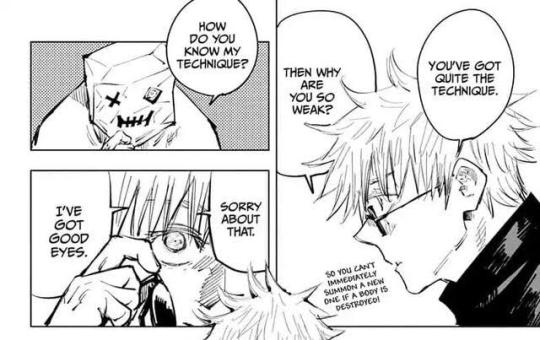
7th level- unlike the prior 6 consciousness, this is directed by one's inner thoughts without any sensory input. This level deals with comprehension of the abstract, morals , distinguishing between good and evil etc. It's akin to one's ego
8th level (Alaya)- The karmic storehouse or storehouse consciousness which is known as 'Alaya' in Sanskrit. This storehouse accumulates one's karmic energy through interactions with others, as well as the causes and effects of one's actions. It stores all of one's thoughts, deeds and words throughout a lifetime , unlike the first 7, the 8th consciousness persists even after death.
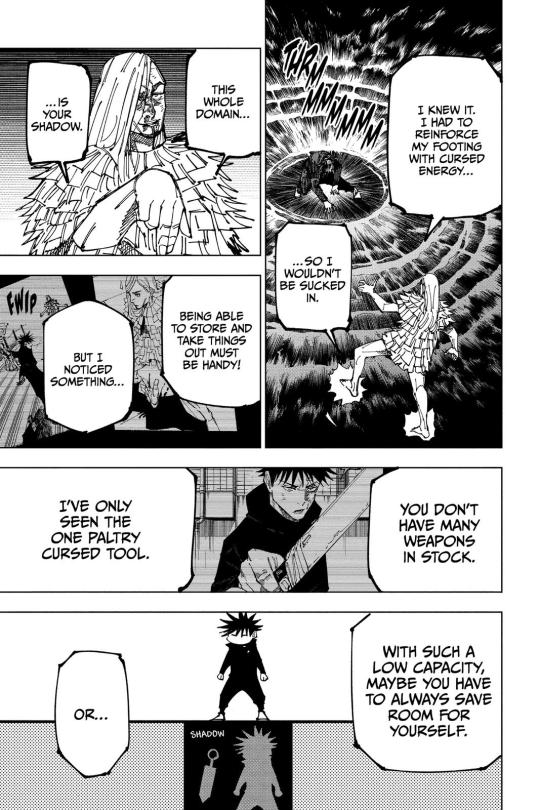
Storehouse consciousness (Megumi's shadow) 9th consciousness ( Brahman)- the final consciousness from which all energy arises. It is the pure consciousness that can even suppress one's negative karma , it cannot be tarnished by any karma, the core for all mental and spiritual activity We have seen the word "Brahmic barrier" mentioned in JJK while referring to the most supreme form of barriers that are even better than the barriers tengen used to suppress the outbreak of curses in Japan, so this tracks extremely well.
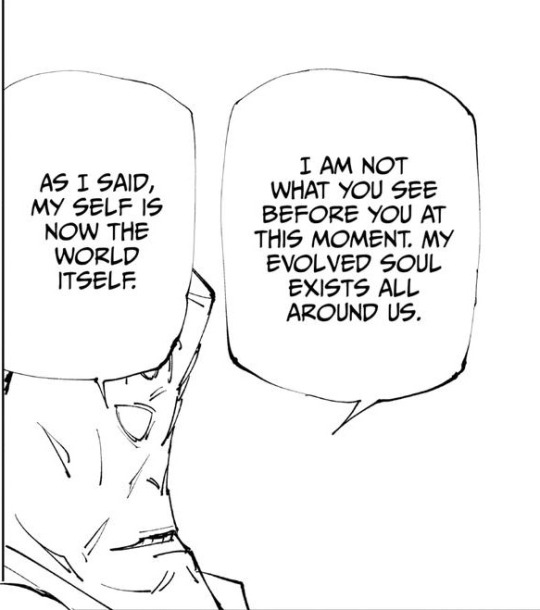
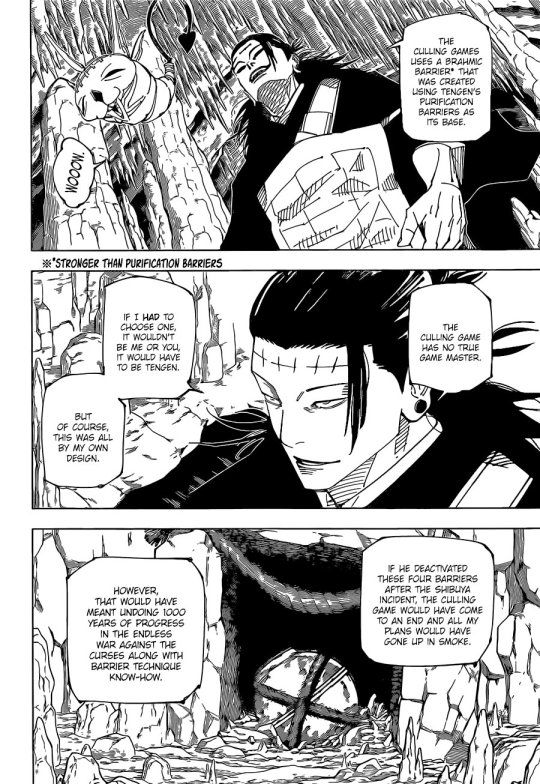
Pure consciousness and the Brahmic barrier, the supreme barrier I'll end this part of my theory here, Next I'll be continuing with Megumi and his connection to the 8th consciousness, the storehouse consciousness (Alaya)
60 notes
·
View notes
Text
It's crazy how good succession war is and the domino effect that will force different characters to collide and crumble hasn't even started yet, Morena will be the key
#HxH
1 note
·
View note
Text
Would you read analysis from series outside Jujutsu Kaisen?
From chapters analysis to character breakdowns/narrative analysis... Would you read it? Please comment or reblog!
16 notes
·
View notes